|
4/27/2023 Is This Man a Russian Agent Operating in the Black Community of St. Louis? By: Jeremy KuzmarovRead NowOmali Yeshitela [Source: sfbayview.com] The Justice Department has just indicted him and three other members of the African People’s Socialist Party for advancing Russian propaganda—though it looks more like the Biden administration was looking for a scapegoat to justify its anti-Russia offensive and found one in a familiar place. On April 18, the Department of Justice announced the indictment of four leaders of the African People’s Socialist Party (APSP) along with three Russian nationals for allegedly working on behalf of the Russian government and Russian Federal Security Service (FSB) in a “malign influence campaign” designed to “sow discord” and “advance Russian propaganda.” The Department of Justice claims that the Russian defendants recruited, funded and directed APSP Chair Omali Yeshitela and three other APSP members (Penny Joanne Hess, Jesse Nevel and Augustus C. Romain, Jr.—aka Gazi Kodzo)—to act as unregistered (and therefore illegal) agents of the Russian government and that they covertly funded and directed candidates for local office in the U.S.
According to prosecutors, one of the Russians charged, Aleksandr Ionov, operated an entity called the Anti-Globalization Movement of Russia, which recruited U.S.-based organizations to help sway elections, make it appear there was strong support in the U.S. for Russia’s invasion of Ukraine, and backed efforts such as a 2015 United Nations petition to decry the “genocide of African people” in the U.S, and a reparations tour by the APSP. Aleksandr Ionov [Source: bbc.com] Yeshitela allegedly traveled from Tampa to Moscow in May 2015 on an all-expenses paid trip to a conference on separatism and to meet with Ionov and other Russians in order to “communicate on future cooperation,” according to an Ionov email. Omali Yeshitela [Source: typworld.com] Ionov is allegedly close with accused Russian agent Maria Butina and Yevgeny Prigozhin, “Putin’s chef,” who is under U.S. sanctions for the Kremlin’s alleged interference in the 2016 presidential election, and promoted California’s secession by paying for posters advertising a pro-secession rally that took place in Sacramento on Valentine’s Day in 2018. What followed from Yeshitela’s 2015 meeting with Ionov in Moscow, according to the indictment, was covert Russian funding and support for various activities in the U.S. until the summer of 2022, including demonstrations at the California and Georgia state capitals and at an unnamed social media company in San Francisco, which had placed restrictions on posts that supported Russia’s invasion of Ukraine. Jesse Nevel [Source: uhurusolidarity.org] In August 2016, Ionov is said to have directed the APSP to publish a statement of support of Russia’s Olympic team as it faced a doping scandal. The article published in The Burning Spear, the APSP’s newspaper, was titled: “Imperialists Ban Russia from 2016 Olympic Games!” APSP says ‘let Russia play!’” The APSP is said to have taken around $7,000 from Russian government sources overall, although it is not clear from the indictment how Yeshitela or anyone in the APSP would have known that Ionov’s group was a front for the FSB—if that is indeed the case. After Russia launched its special military operation in Ukraine in February 2022, Yeshitela appeared at two web conferences with Ionov (“Live with Russia” and “Negating Colonial Lies”). Ionov’s group additionally allegedly provided clandestine funding to an APSP candidate who ran for St. Petersburg City Council in 2019, Eritha Akilé Cainion, who held a news conference in 2022 in which she said—accurately—that “world colonial powers have been collaborating against Russia” for more than a century. Eritha Akilé Cainion [Source: floridapolitics.com] Flowing From the Russia Gate Hysteria--or Was it a Trap? Mr. Ionov denounced his indictment on Facebook, saying that “I have never met such nonsense and deception. There are no specific names of officials, there is no evidence of funding and there are no intelligible arguments.” He went on: “The Ukrainian crisis has driven American officials crazy! Comrades, now you see what kind of ‘democracy’ exists in the USA!” Grayzone Project founder Max Blumenthal tweeted after the announcement of the indictment: “this fake and racist case [against the APSP] flows from the Russiagate hysteria that convinced millions of Americans that Russia was paying dissident groups to destabilize the U.S. political system. The FBI was unable to find anything real, so it went after the African People’s Socialist Party.” Max Blumenthal [Source: dailynorthwestern.com] Blumenthal appears to be correct but there is another possibility that Ionov is a double agent or asset of U.S. intelligence services, or was subjected to blackmail by them, and that Yeshitela and the APSP were lured into a trap. Why otherwise would the Russians court, or prey on, an obscure African-American socialist organization in a decidedly capitalist country with little influence over anything? And support causes with no chance like California secession, or political candidates with no hope in a city council race? 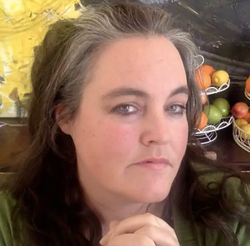 Blogger Caitlin Johnstone pointed to the hypocrisy of the U.S. government in that it is constantly engaging in foreign influence operations through outfits like the National Endowment for Democracy (NED), which was set up to help foment coups and color revolutions and advance U.S. information interests overtly in ways the CIA used to do covertly. According to Johnstone, when foreign governments try to stop this activity, the U.S. State Department invokes “free speech,” which it evidently cares little about in the case of the APSP.[1] FBI Pre-Dawn Raid and Its Antecedents As a prelude to the April 18 indictments, the FBI mounted a violent pre-dawn raid on Yeshitela’s home in the eastern part of St. Louis on July 29. Combat-clad agents equipped with automatic weapons smashed windows, broke down the door, and set off deadly military-grade flash-bang explosives (aka “concussion grenades”). The FBI made a big show of the raid before the entire community, occupying a neighbor’s yard and smashing down his door as well. Then they humiliated Yeshitela and his wife by forcing them outside at gunpoint, handcuffing them in front of their neighbors, and forcing them to wait as the FBI agents ransacked their home and removed computer equipment, APSP files, and other electronic devices. Omali Yeshitela stands before his home and speaks to supporters after FBI raid on July 29. [Source: stltoday.com] The July 29 spectacle was not Yeshitela’s first experience being targeted by police for his political activism. Working as an organizer with the Student Non-Violent Coordinating Committee (SNCC) in the 1960s when he went by Joe Waller, Yeshitela was arrested for tearing down a racist mural on the St. Petersburg, Florida, city hall building during a demonstration. Omali Yeshitela speaking before crowd in late 1960s. [Source: apspuhuru.org] When Yeshitela got out of prison, he organized a Black Power organization that became a victim of the FBI’s notorious counter-intelligence operation (COINTELPRO). Economic Self-Empowerment Inspired by the teachings of Malcolm X and the Black Panther Party, the APSP was officially founded in 1972 with the goal of liberating Black people from the scourge of white supremacy, colonialism and neo-colonialism in the U.S. and around the world. In the 1980s, the group set up successful African-American-controlled economic institutions such as the Uhuru Bakery Café in Oakland, and established the first tribunal demanding reparations for people of African descent. APSP furniture stores, which have been successful in Oakland and Philadelphia. [Source: apspuhuru.org] The group has also built basketball courts, and established a program to train African-American women as midwives to try to help offset high infant mortality rates in the northern part of St. Louis along with other job training programs to help former Black prisoners reintegrate into society. Building Relationships with Whomever We Want Akilé Anai is the APSP leader in St. Petersburg named in the indictment as having received Russian money when she ran unsuccessfully for the city council in 2019 on a reparations platform (she received 18% of the vote). Having her car seized during the FBI’s July 29 raid, she said that the APFP “can have relationships with whomever we want to,” and that the FBI’s actions were part of a “propaganda war being waged against Russia every single day throughout the news.” Akilé Anai [Source: uhurusolidarity.org] COINTELPRO Redux Ajamu Baraka, leader of the Black Alliance for Peace, tweeted after the July raid that Black radicals were being targeted again for “not falling in line with the U.S. imperial agenda on Ukraine.” Ajamu Baraka [Source: hamptonthink.org] Attorney and organizer Kamau Franklin stated: “This is a COINTELPRO operation, one meant to destroy Black organizations.” [Source: loveancestry.com] The COINTELPRO operation has included the issuance of sanctions on the APSP, which has had loans withheld by Regions Bank, been blocked by Facebook from doing crowd-funding, had more than $9,000 in donations frozen by GoFundMe, been blocked from processing payments by Stripe, and had $36,801 in funding revoked by the Pinellas County Commission that had previously been approved for a Black community radio station. [Source: handsoffuhuru.org] 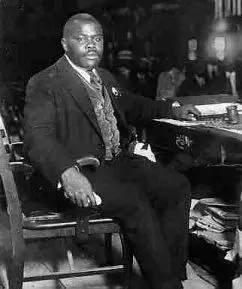 Noting that, during the raid, the police targeted him with a laser beam and that his wife was nearly knocked over by a drone, Yeshitela pointed to a plan in the 1970s, promoted by St. Louis city leaders such as future House Majority leader Richard Gephardt (1989-1995), that aimed to build up the southern part of St. Louis, where Whites lived, and demolish thousands of homes in the northern part of St. Louis, where the Blacks lived. The rehabilitation of decaying buildings there was considered “uneconomical.’” What was left of Black Wall Street after the Tulsa Race Massacre. [Source: edition.cnn.com] 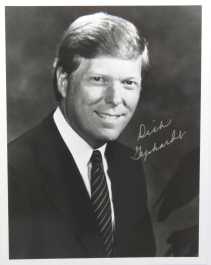 Besides shooting down Black youth like Michael Brown, the city has since taken over more and more of the Blacks’ land, Yeshitela said. They destroyed whole communities by driving up taxes to levels Blacks could not afford, building such monstrosities as the National Geospatial-Intelligence agency, a military installation involved in U.S. wars in Ukraine, Syria and elsewhere. The government today very clearly, Yeshitela noted, is trying to create fear in the White population by linking Blacks to the Russians so as to discredit their efforts to fight back. “By defining us as enemies of the state,” they could justify “seizing our communications and computers [of the APSP] and stealing forty years of our archives, which wipes out part of our history.” As If Black People Have No Agency Yeshitela posted a video on Facebook after the FBI’s raid in which he acknowledged meeting Ionov in 2015 in Moscow at a conference involving questions of self-determination and colonialism.  Yeshitela said that he supports Russia against Ukraine, as it was the U.S. which provoked the conflict by overthrowing the elected government of Ukraine which, since the coup in 2014, has “killed 13,000 to 14,000 Russians or Ukrainians who supported Russia in eastern Ukraine.” According to Yeshitela, it was hypocritical to condemn him for going to Russia when Whites were never condemned for going to Israel, which occupies Arab lands in historic Palestine. The APSP “supports Russia in Ukraine just like it supports the self-determination of the Palestinians; and the people of Nicaragua when they made a revolution against U.S. puppets there, and people fighting against oppression everywhere.” Yeshitela reminded his audience that “it was the U.S. government—and not the Russian government—which overthrew democratic governments in Iran and Guatemala in the 1950s, which mounted a coup against Hugo Chávez in Venezuela, and which killed Malcolm X and Martin Luther King, Jr., as well as 30 members of the Black Panther Party—including Fred Hampton—in one year alone.” The FBI’s July 29 raid, in Yeshitela’s view, was part of a renewed “ideological war by the U.S. government directed against Black people and Russia,” whose purpose was to discredit Black political activism and further U.S. support for its war by proxy against Russia in Ukraine. Yeshitela said that many Whites across the U.S. had now “come to support the demand for Black reparations,” which has “made people in power nervous,” so they “have to attack us and try to link the leaders of our movement to Russia.”  When “home-grown American Whites—having nothing to do with Russia—tried actively to overthrow the U.S. government on January 6 and threatened to kill the Vice President, the government did not respond by raiding the culprits’ homes with flash-bang grenades and drones like they did mine.” Most insulting, Yeshitela said, was the insinuation that Blacks could not lead their own struggle—that somehow, they had to turn to Russia and to “wait for Russia to tell us we’re oppressed,” especially when conditions in their community were so bad. As if Black people “have no agency or will of their own.”
AuthorJeremy Kuzmarov is Managing Editor of CovertAction Magazine. He is the author of four books on U.S. foreign policy, including Obama’s Unending Wars (Clarity Press, 2019) and The Russians Are Coming, Again, with John Marciano (Monthly Review Press, 2018). He can be reached at: [email protected]. This article is republished from CovertAction Magazine. Archives April 2023
0 Comments
4/27/2023 6 Weeks Later: The State of East Palestine, Ohio from the Eyes of a Local By: Katie FRead NowTimothea is a long-time resident of East Palestine, Ohio and a victim of the Norfolk Southern train derailment. The train transporting toxic chemicals was 150 cars-long, 20-25% longer than the average length of trains in 2017, and it was operated by three conductors, with only 4 paid sick days each– just half of the national average. Of course, the release of 100,000 gallons of chemicals into a town only 3 square miles in size might have been avoided had our so-called “socialist” leaders fought for the rights of the railroad workers to secure a more favorable contract that was already years overdue. Now, Timothea and her community are stuck with the consequences as they navigate serious health and safety concerns under a government that provides little to no support for the poor and working class. Norfolk Southern’s greed, combined with the apathy of the state and federal governments, has exacerbated the existing failures of a system whose stated purpose is to ensure safe and healthy lives for the people of East Palestine. As PR efforts work to paint a picture of hope with bogus presidential visits and performative water-drinking, Timothea’s accounts of her lived experiences paint a radically different picture. For example, the Ohio government’s department of health recently received emergency funding from the US Department of Health and Human Services for pop-up health clinics claiming to offer medical examinations. Timothea, who has struggled with chronic headaches since the incident, stated that the clinics provide no real diagnoses or meaningful care: “They just document that you’ve been there.” Meanwhile, the residents of East Palestine who are without jobs and/or in need of food assistance must turn to Ohio’s SNAP program, which mandates employment and training sessions to obtain more than three months of food stamps. This policy is applied to children as soon as they turn 16. Although the government claims that workers with physical and/or mental disabilities may be exempt from work requirements, Timothea reported that letters of verification are hard to come by. “It’s exploitative bullshit,” she said. “A lot of these nurse practitioners think that if you’re not superbly disabled, they won’t give you one of these letters.” Now with the regular stresses of being poor, you also have the stress about toxic chemicals. Since we’re poor, these corporations, these people who are in charge, they don’t care. Despite the criminal activity of Norfolk Southern, whose revenue was a record-breaking $3.2 billion in Q4 of 2022 alone, the residents of East Palestine are rising up, taking every opportunity to confront those in power and hold them accountable. “I am super proud of our little town, because they have not shut up. Any time you go to a meeting with the EPA or the city government, shit gets wild.” Below is a statement from Timothea detailing her experience in East Palestine from February 3rd until today: My name is Timothea D. I’m here tonight to tell you that I am broke, I have been broken, and that the entire system is broken. Back in October, I was struggling with my mental health and lost my job. I was in bad financial straits. I didn’t work for four months. I had to apply to Job & Family Services for benefits. I applied for Medicaid and food stamps. The process of getting food stamps is demoralizing. They make you jump through hoops just to live. In Ohio, if you need food and you don’t have a job and you apply through Job & Family Services for help you have to perform a “work assignment.” This is where you go to a job where they don’t pay you. I lost my job because I was struggling with my mental health and couldn’t go to work, and now they want me to go back to work. I’m still struggling with my mental health, and they’re not even going to pay me. A number of weeks after applying, I finally get my food stamps and I have to go with my family to Walmart to use them, which means that I have to spend all day with my family and my dad who is talking about how much he hates gay people for an hour because he knows that will upset me. It’s ridiculous because my life is super stressful– It’s more stressful than it was when I was working. It took two hours at Walmart to get the groceries. I come home, put the groceries away and lay down for a minute because I’m so fatigued. Then I hear sirens and I’m like, “What’s going on?” and my sister is like, “There’s a train fire,” and I’m like, “What’s a train fire?” The train derailment shows how the system is broken in a different way. On one hand, I’m trying to navigate this goofy food stamp system. I’m trying to get a job. I’m going through a really difficult period in my life. And then my hometown gets blown up by a train derailment. All three of us are on Facebook trying to figure out what is going on because exactly where the train derailed, there is a gas station, and we’re thinking, “This gas station is going to blow up, and it’s going to blow up the whole town.” My mom and my sister had to round up all the cats, but we only had one cat carrier. Now, four of the cats can get along fine, but one of the cats does not get along with the others, so we can’t put her in there with the other cats. My mom got a laundry hamper to try to put Willow in, but she just started tearing up my mom with her claws and would not go in the laundry hamper. We grab the cats, except for Willow, and we go to my brother Mark’s house. My brother set up air mattresses on the floor and me, my mom, my sister and my brother-in-law slept on the floor, and my dad slept on the couch. The next day, we find out that the town has not blown up. They came out with a press release that it’s this disaster and there’s chemicals, but they’re keeping the fire contained. We went back with the cat carrier and got Willow and some supplies. The house didn’t really smell, but you can smell it outside. We’re 1.5 miles away. My mom couldn’t handle sleeping on the floor again, so we spent the night in the house. The next night, my mom was like, “I don’t want to go back to Mark’s,” but I’m like, “Mom, that gas station is right there.” On one hand, we’re getting told to shelter in place. On the other hand, the situation is getting worse. The fire chief said, “If you don’t need to be in East Palestine now, don’t.” The next day, they said they were going to do the controlled burn. We’re watching everything that is happening on the news. My brother’s kids are everywhere. It’s cramped. Mark’s dog is trampling all over the air mattresses which is setting off my OCD and I’m having even worse mental health issues. The whole time this is happening, I’m still going through this food stamps business. While I’m at Mark’s house, I have to call the lady about my interview to do my “work assignment.” There are screaming kids, and life is still going on. I have no money, and I have no idea where I’m going to get any money. Are they going to make me do this work program while I’m displaced? Or am I going to get cut off of my food stamps? Meanwhile, we watched a livestream of the mushroom cloud. The train derailment shows how the system is broken in a different way. On one hand, I’m trying to navigate this goofy food stamp system. I’m trying to get a job. I’m going through a really difficult period in my life. And then my hometown gets blown up by a train derailment. I’m struggling in poverty with few safety nets, and struggling to survive as it is. Then some lying, greedy, negligent corporation decides to blow up a train 1.5 miles from my house. If Norfolk Southern offers me a thousand dollars, I’m going to take it. I don’t have any other choice. That’s the position that people in East Palestine are being put into right now because there are so many people who are going through the same stuff I’m going through, or they’re living paycheck to paycheck. I’m lucky enough to be in my home. Some of these people are still out of their home. I still get headaches every day. Class Unity extends our deepest thanks to Timothea for taking the time to share her story, and for allowing us to platform her experience. We stand in firm solidarity with the poor and working class people of East Palestine in their fight for health, security and livelihood. AuthorKatie F This article was republished from Class Unity. Archives April 2023 I've just come away from watching an interview with the acclaimed author and philosopher, John Bellamy Foster, conducted on the Midwestern Marx YT channel. It was like a bucket of ice water in the face (for me!). In what way? Well, as anyone unfortunate enough to read my stuff will know, I’m enthralled by what Foster would call philosophical “irrationalism”. Years ago, I resurrected my mental stability in part through the works of philosophers such as Schopenhauer, Von Hartmann, Nishida Kitaro, Bergson etc etc. All very much philosophers of mysticism and intuition. The closest I get to similar levels of enthusiasm with purely rational philosophers is with Marx and Spinoza. My bad. I’m not just saying that, nor am I being ironic. I think Foster is absolutely right. We have a looming twin apocalypse ahead from either nuclear war, climate collapse or both. It’s time for politically thinking people to dwell in the rational and practical. In fact, Foster’s talk held up an inconvenient mirror for me. I constantly bang on about how bloody awful and destructive the arisen cults of irrational contrarianism, conspiracy theorism, and general anti-realism are, while concurrently in my private moments, I wrap myself in deeply mystical thought. In my own defence, I try to keep a clear enough distinction between my ‘spiritual' life, which is the proper realm for mysticism, and my social attitudes and praxis (limited though that has unfortunately been in recent years). I keep the necessary wall in tact, a feature of mature political republicanism, between my religious beliefs and what has to be done for securing the life and well-being of all people. But even here, I suppose, having listened to Foster, I am guilty of placing far too much importance on my private musings. The main thrust of Foster’s argument (actually, go and watch the interview if you can : it’s just released on Midwestern Marx YT, conducted by Carlos Garrido) is the neutering obscenity of what passes in the western academy for “left”, ie the successors of the post-modernists, the Frankfurt school, the daft imperialism-friendly woo of Zizek etc and how these siphon off vital energy and attention from the real struggles. It centers on a discussion of the mid 20th century Hungarian philosopher Lukacs and his criticisms of the Frankfurt school as a sort of academic brothel for western capitalism, anti-communism and imperialism, and of Heidegger as well as the ongoing apologetics for Heidegger (in shame, I admit to having re-read Being and Time and not found it without merit, though I retain an extremely dim view of the man). It’s an excellent and timely discussion. Now I’m going to go for a cold shower. Realism might be growing on me. AuthorROSS ION COYLE This article was republished from Ross Ion Coyle. Archives April 2023
Russian FM Sergei Lavrov in Havana, Cuba, April 19, 2023. | Photo: Twitter/ @mfa_russia
Currently, Russia is one of Cuba's top ten trading partners, and both governments define their partnership as "strategic."
On Wednesday night, Russian Foreign Minister Sergei Lavrov arrived in Havana for talks that will focus on promoting political, economic, educational and cultural cooperation. Previously, he visited Brazil, Venezuela and Nicaragua.
On Thursday, he is expected to meet with President Miguel Diaz-Canel, whom the Cuban parliament yesterday re-elected for a second five-year term. "Russia-Cuba relations are excellent since both countries give them priority. They are also based on their peoples' traditional friendship ties," the Granma newspaper commented. High-level political dialogue "has been valuable, friendly and aimed at promoting bilateral relations in all fields of mutual interest and benefit," it added. Currently, Russia is one of Cuba's top ten trading partners, and both governments define their partnership as "strategic."
In 2022, Diaz-Canel traveled to Russia to hold a meeting with President Vladimir Putin, with whom he analyzed the development prospects of the Russian-Cuban strategic association.
In recent months, the Russian Security Council Secretary Nikolai Patrushev, the Cuba-Russia Business Council President Titov Yurievich, and Rosneft Director Igor Sechin have traveled to this Caribbean country. On his Latin America tour, Lavrov has met with presidents Lula da Silva (Brazil), Daniel Ortega (Nicaragua), and Nicolas Maduro (Venezuela). During his stay in Caracas, he also spoke with Saint Vincent & the Grenadines Prime Minister Ralph Gonsalves and the Bolivian Foreign Affairs Minister Rogelio Mayta.
AuthorteleSUR
This article was republished from teleSUR.
ArchivesApril 2023 4/26/2023 In Chicago the Left Embraces Democrats and Celebrates Brandon Johnson’s Victory By: Stansfield SmithRead NowBernie Sanders (left) and Chicago’s mayoral candidate Brandon Johnson (right) at Credit Union 1 Arena on March 30, 2023. Photo: Colin Boyle/Block Club Chicago. Brandon Johnson, a progressive black community activist, union organizer, and former teacher, won the Chicago mayoral election against Paul Vallas, the corporate Democrat opponent. Johnson’s victory expressed popular rejection of neoliberal privatization and respect for progressive unions, in particular the Chicago Teachers Union (CTU). Johnson was outspent two to one, but not out-organized, winning 52-48%. The election displayed once again the power and organizing skills of the CTU, and showed that people, when they are involved, can upend election predictions. His campaign also showed how easily leftists can slide from opponents of the corporate rule of America with their two parties to fervent supporters of Democrats when a progressive or liberal candidate seems likely to win an election. We saw this before with their enthusiasm for Bernie Sanders in 2016, then again in 2020, even after Bernie had kowtowed to the billionaires’ candidate. We see it with AOC, who is morphing from a socialist into a corporate shill. And before that, leftists had been enthralled with Mr. Hope and Change, Barack Obama. The “socialist” journal Jacobin enthused over Johnson’s mayoral victory: “A week ahead of the April 4 election, Johnson rallied alongside Sen. Bernie Sanders in Chicago, who declared, ‘The fundamental issue is: What side are you on? Are you on the side of working people or are you on the side of the speculators and the billionaires? And I know which side Brandon is on.’” This is dishonest – both by Bernie and by the Jacobin – the Democrats are on the side of the 1%, not the 99%. Bernie made this perfectly clear in his 1989 article “We Can’t Tail After the Democrats.” “We need a new, progressive political party in the US because on almost every important issue the Democratic and Republican Parties, both controlled by Big Money, are indistinguishable … We need a new, progressive political movement in this country because the Democrats and Republicans are not only incapable of solving any of the major problems facing this country, they are not even prepared to discuss them … The boldness and clarity that we need to articulate can never be done through the compromised and corrupt Democratic Party – dominated by Big Money.” At his election victory celebration, Johnson declared, “Tonight is the beginning of a Chicago that truly invests in all of its people … a city where no one is too poor to live. There’s more than enough for everyone in the city of Chicago.” Certainly there is, but since the corporate CEOs run the city – a fact Johnson does not address – this will not happen. How would working class leftwing activists view this election? They would explain that Chicago is owned by the business, banking and real estate elite. They would explain that elected officials are not the city’s decision-makers. It matters little what some politician says and promises while campaigning: even if they meant what they said, they do not call the shots. The corporate built and controlled political and economic structure does. They would explain that liberal Democrats like Brandon Johnson are obligated primarily to the Democratic Party chiefs and their billionaire bosses, not to the people who elected them. They would explain that even if a Brandon Johnson ran and won, not as a Democrat, but as a representative of an independent popular movement, his electoral victory would result in roadblocks placed in his way by the ruling class to thwart every progressive move his movement made. Brandon Johnson, as mayor, plans to bring about expanded social programs to benefit the people funded by raising taxes on wealthy elites. His campaign website called for safe, vibrant neighborhoods, affordable housing, healthcare for all, fully funded schools. Any leftist knows it is naïve, if not dishonest to propagate the view that these can be achieved under the neoliberal capitalist system we are trapped in. The corporate owners of Chicago possess numerous weapons to housebreak a mayor, such as lowering the rating of municipal bonds, threatening to move their business out of the city, whipping of fear of crime (causing people to leave the city and undermining the city as a tourist destination – with $15 billion spent by tourists in 2017). The power of the media, the banks, the police, the courts, the real estate companies, the billionaires’ corporations vastly outweighs that of Johnson’s supporters. Their Chicago City Council is aligned against him; a majority support Johnson’s pro-corporate neoliberal opponent, Paul Vallas, and are able to vote down any unwelcome measure he proposes. Nor does Johnson have great influence in the Democratic Party machine. A working class leftwing would explain that Brandon Johnson’s campaign promises must be okayed by Chicago’s business leaders to become a reality. Their power could only be countered by an on-going mass movement of the people, who would have to fight hard for any substantial social change. Yet, as Bernie Sanders’ campaigns illustrated, the loosely organized movement behind him was disbanded after his campaign was over. It is no surprise to any leftist that the owners of the corporations are the ruling class. Nevertheless, they seem forever willing to throw this ABC of Marxism out the window if some progressive Democrat is a serious contender for elected office, and act as if significant social and economic change can occur through the ballot box. This scenario of leftists campaigning to elect some liberal or “socialist” Democrat, forever ending in some electoral defeat or capitulation to the Democratic bosses, repeats itself over and over. The Jacobin, “socialist” media for the Democratic Party, propagates this pipedream that the “people” can capture a power base in the Democratic Party, as if the people could capture a corporation. It declared this nonsense: “Chicago’s left scored its biggest victory in recent memory;” “a watershed moment for the progressive movement.” Out of one side of their mouth leftists will proclaim, as Bernie did in 1989, that we need a working class party because the Democrats and Republicans are owned by the ruling rich. Out of the other they still hold that real social change can come through electing these people. Marxists must be honest, must not mislead the people, must explain to people the class structure of US society, and the hard work we face if we want to end global warming and Martin Luther King’s three evils of society: war, racism and poverty, Unions such as the CTU and other teachers unions, the SEIU, National Nurses United, did support and provide most of the funding for Brandon Johnson’s campaign. Jesse Jackson, Bernie Sanders, and the most progressive City Council person, Byron Sigcho-Lopez, actively supported his campaign. This did not make it a working class campaign, but a labor for the Democratic candidate campaign. Let’s not overlook that his opponent, Paul Vallas, was endorsed by over 15 unions, and also built a base in the Black and Latino and Asian communities, one that included Bobby Rush. Johnson no longer calls for defunding the police. This change reflects the diversion of the 2020 Black Lives Matter movement into a vote against Trump campaign. The ruling class has since been able to shift the sentiment of millions who demonstrated against police brutality. They had the police slack off in combating crime, crime rates rose, and fear of crime was whipped up. Now, just over two years after Blue Lives Matter was viewed as almost fascist, a common sentiment today is for more police. Brandon did say “Any speech or any effort to delegitimize Israel and its right to exist, that’s how I view antisemitism.” He is opposed to BDS. “The divestment movement is not aligned with my values,” he said. Rumor has it he privately apologized for these reactionary statements defending Israeli apartheid. Brandon was congratulated by Obama, Kamala Harris and Joe Biden. Chicago was rewarded with hosting the 2024 Democratic National Convention days after his victory. Thus, leftists for Johnson played a role in cloaking the Democratic convention in a faux progressive aura, where Biden or some other neoliberal warmonger will be nominated. Leftists may pretend there are progressive Democrats in opposition to neoliberal Democrats, but Democratic elected officials see themselves as all belonging to the same tent, the same tent that includes Republicans. No leftist conjuring up “Our Revolution,” no Democratic Socialists, no United Working Families is going to alter that. AuthorStansfield Smith is a Chicago based anti-imperialist activist. He was active for over a decade in the Chicago Committee to Free the Cuban 5. His work is now on ChicagoALBASolidarity.wordpress.com. He has written on Venezuela, Bolivia and Ecuador for the Council on Hemispheric Affairs and on North Korea for Counterpunch and others. This article was republished from Orinoco Tribune. Archives April 2023 A study published this week in the Journal of the American Medical Association (JAMA) estimated that poverty was linked to at least 183,000 deaths in the United States in 2019 among people aged 15 and older, making it the fourth leading cause of mortality in the country that year, behind heart disease, cancer, and smoking. “Poverty kills as much as dementia, accidents, stroke, Alzheimer’s, and diabetes,” said David Brady, professor of public policy at the University of California, Riverside and lead author of the study. “Poverty silently killed 10 times as many people as all the homicides in 2019,” Brady continued. “And yet, homicide, firearms, and suicide get vastly more attention.” The new analysis, co-authored by Ulrich Kohler of the University of Potsdam in Germany and Hui Zheng of the Ohio State University alongside Brady, stressed that the US “perennially has a far higher poverty rate than peer-rich democracies,” which “presents an enormous challenge to population health given that considerable research demonstrates that being in poverty is bad for one’s health.” The researchers analyzed US citizens’ income data from the Institute for Social Research at the University of Michigan and death data from household surveys from the Cross-National Equivalent File. They then cross-checked the deaths using a database kept by the US National Center for Health Statistics. Poverty, which the study defined as making less than half of the median US income, was “associated with greater mortality than many far more visible causes in 2019—10 times as many deaths as homicide, 4.7 times as many deaths as firearms, 3.9 times as many deaths as suicide, and 2.6 times as many deaths as drug overdose.” “Because the US consistently has high poverty rates, these estimates can contribute to understanding why the US has comparatively lower life expectancy,” the researchers reported. The researchers argued that their results indicate that “poverty should be considered a major risk factor for death in the US,” which has seen life expectancy decline since 2015 and fall sharply in the midst of the COVID-19 pandemic. “The mortality associated with poverty is also associated with enormous economic costs,” they continued. “Therefore, benefit-cost calculations of poverty-reducing social policies should incorporate the benefits of lower mortality. Moreover, poverty likely aggravated the mortality impact of COVID-19, which occurred after our analyses ended in 2019. Therefore, one limitation of this study is that our estimates may be conservative about the number of deaths associated with poverty.” The onset of the pandemic in 2020 brought about a sharp increase in poverty in the United States as millions of people fell ill, were fired from their jobs, and lost health insurance. However, government relief initiatives enacted in response to the economic and public health crisis, from stimulus checks to increased unemployment benefits to enhanced nutritional assistance, ultimately led to a significant drop in poverty, reinforcing the case that “poverty is a policy choice.” Nevertheless, many of those poverty-reducing aid programs have since lapsed or been terminated, threatening to reverse any recent progress. Poverty should get more attention from policymakers, said Brady, director of University of California Riverside’s Blum Initiative on Global and Regional Poverty. “If we had less poverty, there’d be a lot better health and well-being, people could work more, and they could be more productive,” Brady said. “All of those are benefits of investing in people through social policies.” (Misión Verdad) with Orinoco Tribune content Translation: Orinoco Tribune AuthorMisión Verdad is a Venezuelan investigative journalism website with a socialist perspective in defense of the Bolivarian Revolution This article was republished from Orinoco Tribune. Archives April 2023 4/26/2023 Gary Hicks—Mentor, revolutionary, and poet—¡Presente! By: Sharon Rose & Danny ShawRead NowOn Dec. 2, 2022, the international working-class movement lost an organizing and literary giant, Gary Graham Hicks. Comrades and friends gathered at the Marxist Library in Oakland, Calif., on Saturday, March 25, for a memorial to remember the diverse contributions of a beloved poet, theorist, and internationalist. We write this tribute so that future generations can draw from the deep well of Gary’s knowledge, verse, sharp-witted humor, and struggles. The Recruiter Black Panther Party member Gerald Smith, who hosted the tribute in Oakland, asked “Who will replace Gary Hicks?” Smith reminisced about the many back-and-forths over the decades about the question of Black America, about the struggle for Black self-determination. Black liberation and class struggle were the two legs Gary walked on. Who else could go into Newark armed with the Black Panther newspaper and interrupt Ron Karenga to remind him that “Marx was a Black man”? Smith went on to talk about the Panthers’ commitment to “pass it on” to the up-and-coming generations. One organization even experimented with the idea of only allowing members a vote if they attempted to bring young people to events.
He encouraged all of us who knew him to follow George Jackson’s immortal words: “Settle your quarrels, come together, understand the reality of our situation, understand that fascism is already here, that people are already dying who could be saved, that generations more will live poor butchered half-lives if you fail to act. Do what must be done, discover your humanity and your love in revolution.” Through it all, Gary worked to build the Communist Party. The Mentor Gary was our living encyclopedia. If he was around, young comrades were sure to have a notebook close by. His knowledge of German, Chinese, Cuban, Yiddishland, South African, and Irish history—and any global struggle—was seemingly boundless. We anticipated the next book recommendation Gary might pick off the shelves of his mind’s library. When I visited the international working class’s ancestral grounds at Sachsenhausen and Dachau, it was like he was there with me. Friday nights were a cause for celebration. Once, there was a new Malcolm biography that had dropped. And there we were at 3 AM, coast to coast, critically picking apart every page by Professor Marable or Les Payne. On another occasion, a Saturday night, Gary was plotting. He called me up well past midnight: “Hey how are we going to get this lousy, philistine scoundrel of a social democrat to join the p’aty?” (Remember he is from Roxbury and I am from Brockton.) Then, on a Sunday night, a group of us were scheduled to finish the final chapter of Black Reconstruction. Every word rose to the occasion. It felt like the 7th game of a playoff series between the Sox and the Yankees. I teased Gary that he got younger every day because he never stopped. The paratransit in San Francisco, a socialist gain fought and won by the people, brought him everywhere and anywhere around town. And when he wasn’t here, we knew he was on a train headed somewhere—to a Progressive Lawyers Guild conference in California, a folk music event in Oregon, a poetry reading in Cambridge, or the Left Forum in New York City. When I called him on the phone, I always anticipated which of the 50 states he might be in this time—flipping off every state trooper as he went. The student of Lenin that he was, I jested that this was his sealed train. In 2020, he introduced me to give a talk at the Marxist Library entitled “Capitalism + Dope = Genocide,” a Panther formulation—and how it was relevant five decades later. Boy was I proud; the student had become the teacher. A brilliant wordsmith, a magical story teller, and a perennial ballbreaker, Gary gravitated gracefully between the gravest and most humorous of topics. Whenever he was around his comrades, his eyes lit up and he locked in on the most pressing international topics of the day. He often answered the phone by saying “This is Murphy’s Poolhall. Eight Ball speaking.” Always principled, he put many backwa’d workers in their place if they were guilty of any act of racism or sexism. He could hug you, but if he had to, he could stand you down, too. He knew the primary contradiction that existed and who the real enemy was but was never shy to check any of us, “on our bullshit.” One young communist, Drew King, picked up the torch and recited the following tribute on March 25th: Gary Hicks Immortal thinker Fearless philosopher History’s restless wanderer Proud Black Bolshevik Lenin’s native son Uncle Ho of Roxbury Southie’s resident Marxist-Leninist Berkeley’s Berlin Wall that will never fall Intellectual giant Gary, Your mind was my portal through history For 17 years, I traversed the infinite shelves of your mind’s cosmic library As you showed me the ways of the force You took me on tours through antiquity, time and space All of pharaoh’s armies never stood a chance against your cunning wit You teach us that the struggle for people’s power is the struggle for memory and against forgetting And since I first asked you what time it was 17 years ago You slowly taught me to realize that it is the same time that it was when those two young men in London put out that clarion call for the workers of the world to unite, 175 years ago I swear on my soul, Gary, they will unite after all and we will win The Revolutionary Gary was a former political prisoner. In March 1966, just before his 20th birthday, the Roxbury native joined fellow war resisters in burning his draft card on the steps of a Boston courthouse in opposition to the U.S. war in Indochina. These pioneers, shoulder to shoulder with Muhammed Ali, were some of the first in the movement that soon shook the country as thousands followed. On that day, the group was beaten up by a crowd of mostly high school students from South Boston. Still, he never expressed any personal bitterness towards workers robbed from our ranks by fascism. Because of his resistance to the genocidal war of aggression against Vietnam, the U.S. government sentenced him to three years in Lewisville penitentiary. There were many chapters and addendums to these stories that could only be understood as poetic license. But they could never cage you, Gary. Born Again Red Fundamental Marx He wrote it. And I read it. And that settles it. When he got out, Gary was determined to pursue higher education, which he did at Penn State, Brown University, and Antioch College, ultimately receiving his Master’s Degree from UMass, Boston in “American Studies.” He spent the rest of his life devoted to the fight for equality and for the interests of the international working class. The coup in Chile in ’73, the Christmas bombing of Panama, the continuation of Communist leadership in China, Gary was on it. From any hospital or nursing home bed, he was getting on the phone to check in with his political fellow travelers. Gary was in the streets putting his training to good use. He was involved in the housing rights movement, beginning in Boston with the Massachusetts Alliance of HUD Tenants, in which he played a key organizing role. Tenants of the last place he lived—Redwood Gardens in Berkeley—benefited from Gary’s knowledge and experience standing up for their rights. No human suffering or triumph was foreign to him. The Scholar If there was a new book out by a leftist author, Gary raced to pick it up. There was nothing he enjoyed more than a good crisp read. He led and participated in many reading groups. Among other classics, we read The Seventh Cross together. Line by line, page by page, he broke down the ins and outs of resistance to the Nazis. He read entire books out loud with study groups, no matter how big or small. W.E.B. Du Bois, Rosa Luxemburg, Eric Hobsbawm, and E.P. Thompson were but a few of his ideological forefathers and foremothers. Students of the movement visited him in the hospital to keep study groups going. When he called, we gathered around the phone. He approached life with a love for it. As his comrade Juan Lopez remembers, he never sought fame or accolades. A true dialectician. A revolutionary optimist who found the silver lining everywhere. A wit sharp like a whip with prose, rhythmic like Amiri Baraka’s Blues-words. A biting sense of humor and a dead seriousness that reminded you no matter what personal challenges you always keep fighting. Comrades remembered: “You can’t talk about Gary without talking about books. His own memorial program was printed on a red bookmark. He was a living example for young communists of Lenin’s quote, “Without revolutionary theory there can be no revolutionary movement.” The Poet His poetry—especially his books, Itching for Combat and A Pen is Like a Piece, You Pick it Up, You Use It—reflected what he was thinking and feeling about political struggles.
Lincoln Bergman, Gary’s close friend from the Revolutionary Poets Brigade, remembered that despite any personal health issues, Gary’s “pan-socio political brilliance was undimmed.” At the memorial, Bergman shared “45 Years Later,” one of Gary’s poems that went: Look at these kids on tanks of victory My Peeps Children of Uncle Ho My hero Today I am 74 The kids on the tanks Roughly my age The kids who I Inmate 33602-133 Prayed for victory Every day of my imprisonment Yes They won And we won, too. The final goodbyes came in the form of affirmations of a radiant future. You brought us together, Gary. We laughed. We cried. We told stories. We listened to poetry. Just as you would have wanted it. Farewell, kindred spirit. Farewell, comrade. These tears are made of knives and machetes. Aimee Cesaire’s redemption. Fanon’s baptism. Algeria’s boomerang. Vietnamese tanks roll forward. We will end as Gary lived, poetically, with the words of Langston Hughes: I loved my friend. He went away from me. There’s nothing more to say. The poem ends, Soft as it began-- I loved my friend. We hope you appreciated this article. Before you go, please support great working-class and pro-people journalism by donating to People’s World. AuthorSharon Rose This article was republished from Peoples World. Archives April 2023 4/26/2023 “What unity are we talking about?”: MAS Celebrates its 28th Anniversary By: Dan SchoenbaumRead NowCrowd at Ivirgarzama, Bolivia, March 26, 2023. Photo: Dan Schoenbaum. Bolivia’s ruling political party held a rally this past March 26. To mark the 28th anniversary of their founding, the party known as MAS—officially MAS-IPSP (Movimiento al Socialismo – Instrumento Político por la Soberanía de los Pueblos; “Movement Toward Socialism–Political Instrument for the Sovereignty of the Peoples”)—called on their leaders, militants, and supporters from all over the country to converge in the town of Ivirgarzama. Normally around 70,000-strong, Ivirgarzama is the largest population center in the region known as the Trópico de Cochabamba. Among Bolivia’s departamentos, subnational divisions equivalent to states or provinces, Cochabamba is the only one that doesn’t border a different country. As tourist materials will tell you, Bolivia is at the heart of South America, and Cochabamba is at the heart of Bolivia. The Trópico refers to the section of Cochabamba covered by the Amazon rainforest. As the crow flies, the departamento’s capital, the city of Cochabamba, is separated from Ivirgarzama by less distance than is Manhattan from Scranton, but the bus ride between the two lasts seven hours. This is because midway to Cochabamba, the Andes start. Despite the town’s placement at the intersection of these extreme environments, the municipality’s mayor told local media in the days leading up to the rally that the event was expected to draw at least 35,000 attendees. That number represented the official capacity of the setting for the convention, Evo Morales Stadium. Having been there myself, I can confirm that the crowd filled the stadium’s seats and field at least to capacity. MAS supporters overflowed out every entrance and pooled around the stadium, where vendors sold everything from churros to chicken grilled on site; from plastic bags of drinking water to handfuls of the sacred coca leaf; from flags bearing the party colors of blue, white, and black to the rainbow patchwork banner of the Indigenous wiphala; from hand-stapled polemics to T-shirts packed with pictures of party leaders and masses; from lessons on tape for learning Bolivia’s most-spoken Indigenous languages, Quechua and Aymara, to umbrellas and ponchos for defense against the torrential rain that broke out the night before and continued on and off until the rally’s start around 11am. Clockwise from upper left: Evo Morales Stadium hours before the rally. A vendor outside the stadium offering MAS flags and accessories. The stadium stage during set-up. Vendors grilling under the stadium bleachers. Photos: Dan Schoenbaum. Since it’s the Amazon, rain is not unusual for Ivirgarzama. But the morning of the rally, a flood turned many of the main roads to the stadium into rivers. Cars, trucks, motorcycles, and vendors pushing carts on foot waded through the water. Thousands of people filtered from buses and packed hotels into one human stream running toward Evo Morales Stadium. When the president of MAS, Evo Morales himself, took the stage, he declared, “I understand the rain to be the greatest blessing, and in 2025, once again, we will win the elections!” For all the solidarity on display, this rally took place at a moment of serious political tension, both within Bolivia in general and within the structure of MAS itself. If the saying is true and war is how Americans learn geography, it makes sense that the 2019 US-backed coup d’état that removed MAS from power put Bolivia on the map for many outside the country. When, less than a year later, MAS returned to the presidency in a decisive electoral victory, the party and Bolivia as a whole became worldwide symbols of successful resistance against domestic antidemocratic reaction and international regime change. Now that a couple years have passed and the thrill of that triumph has receded, it is becoming harder and harder to ignore how much lasting damage the coup and its fallout did to Bolivia’s society, economy, and Movement Toward Socialism. The 2019 coup took place in the middle of a general election in which MAS’s presidential candidate was then-incumbent Evo Morales Ayma, seeking what would have been his fourth consecutive term as Bolivia’s president. After the counting of votes had been disrupted, Evo Morales had fled the country under threat of arrest or assassination by a military clique, and the obscure senator Jeanine Áñez of the Democratic Unity party had declared herself president in an infamous 11-minute parliamentary session, Áñez’s “transitional” government called new elections. However, the legislation to implement these snap elections barred anyone who had been elected in either of the previous two terms from running. This is where Bolivia’s current president, Luis Alberto Arce Catacora, came in. With Morales removed as an option, MAS party delegates elected Arce to be their new presidential candidate. Arce, however, was anything but a direct substitute for Morales. Evo, the single name by which Morales is known by supporters and detractors alike, is a born-and-raised campesino, a word often translated as “peasant” or “rural laborer” to capture its class connotation that literally signifies a person from the campo, the countryside. Neither of Morales’s parents knew their exact dates of birth, but according to the editor of his autobiography Mi Vida, when they married, his mother was around 30 years old while his father was between 16 and 17. Raised in an ayllu—a traditional community structure that predates the rule of the Incas—by a family who herded sheep and llamas, Morales made his name as a union organizer among the coca farmers of the Trópico de Cochabamba. He was present as a leader at every stage of MAS’s founding, including the March 26, 1995, date that so many came to commemorate in Ivirgarzama. Luis “Lucho” Arce grew up in the capital, La Paz, as the child of public school teachers. He worked almost two decades in Bolivia’s Central Bank and ran a Marxist reading circle on political economy. In Morales’s first cabinet, Arce headed the Ministry of Finance. He later assumed leadership of the new Ministry of Economy and Public Finance, which he ran up until the 2019 coup with the exception of a two-year medical sabbatical. Widely regarded as the brains behind the economic miracle that MAS’s tenure brought—more than quadrupling Bolivia’s GDP, cutting the country’s extreme poverty rate by more than half—Arce was held up in the 2020 post-coup re-do election as a symbol of the party’s technical proficiency, professionalism, and intellectualism. Compared to the coup regime, which wasted no time in dismantling public works projects, abandoning the population to uncontrolled covid spread, and cracking down on working-class dissent with bloody massacres, Arce’s appeal clearly won out, scoring him a first-round electoral victory with over 55% of the vote. But as a foil to Evo, in the eyes of much of the MAS base, Lucho almost inevitably stood in as well for depoliticization, compromise with rules written by coup-mongers, a sop to the middle class—in short, for moderation. That association only grew stronger as the difficulties of the post-coup, post-restoration status quo sank in. The extent to which Bolivia’s current economic stress can be attributed to lingering damage from the coup regime’s policies, mismanagement from the current government, or global crises outside any Bolivian’s control is a matter for debate, but there’s no arguing the fact that, as Morales told Arce at a departmental congress about a week before the Ivirgarzama rally, “We’re not so good economically.” Though Lucho takes every opportunity to tout the status of the inflation rate as one of the “lowest in the region”, GDP has returned to its pre-coup level, and it hasn’t gone much past that. That makes differences of outlook and policy harder to sweep under the rug. The political struggle that came to a head in the 2019 coup has by no means ended. Ex-president de facto Áñez was arrested in March 2021 on charges of terrorism, sedition, and conspiracy relating to the coup and was sentenced to ten years in prison in June 2022. But many of the coup’s other key players remained at large. The most conspicuous example was Luis Fernando Camacho Vaca, probably most well known outside Bolivia for storming the presidential palace in the first hours after Morales’s resignation, grabbing a quick photo op with a Bible laid on top of the Bolivian tricolor, and immediately exiting the building to bow his head in prayer before the pastor Luis Aruquipa while Aruquipa declared that, “the Bible is returning to the Palace of Government. Pachamama [the Andean deification of Mother Earth] will never return. Today Christ is returning here to the Palace of Government. Bolivia is for Christ.” Despite Camacho’s bragging on camera to his supporters that “it was my father who sealed a deal with the military [and] police” to secure Morales’s resignation, his case was complicated by the fact that in March 2021, Camacho was elected governor of his home departamento Santa Cruz. Bolivia’s easternmost departamento, Santa Cruz occupies the country’s lowland plains, where the population tends much more European in ancestry. Ranching and logging industries have built up a powerful regional oligarchy as well as the main cultural, political, economic, and demographic rival to the Andean center of gravity. That last field, demography, became the arena for the most significant political conflict in Bolivia in 2022. By October 2022, an arcane dispute over whether Bolivia’s next national census should take place in 2024 (following a delay established by presidential decree) or 2023 (as the opposition demanded) became the justification for Camacho and his allies to launch a paro, literally a “stoppage” but translated variously as “strike” by uncritical media and as “bosses’ lockout” by media that emphasized the dominant role played by the owning class in this action. Union workers reported threats by extremists to force them to close shop. At one point, frustrated laborers briefly seized over half a dozen shuttered factories in an industrial Santa Cruz suburb. In an ugly turning point for the campaign, a mob of Camacho’s supporters sacked and set fire to the departmental headquarters of CSUTCB, a campesino labor union. For this and other reasons, the regional stoppage mostly just seemed to hurt the region itself. Arce’s government was widely seen as taking a hands-off approach to the conflict, but after a little more than a month, the protest fizzled out, the paro was lifted November 26, and both sides seemed to accept the government’s victory and quietly walk away. Three weeks later, MAS started to make some noise. On the occasion of another anniversary rally, the December 18 celebration of the Día de la Revolución Democrática y Cultural (Day of the Democratic and Cultural Revolution), marking seventeen years Morales’s first election as president in 2005, Evo himself addressed a stadium of supporters in Sacaba. A heavily working-class suburb of the city of Cochabamba, Sacaba was the site of the coup government’s first public massacre, when, in the first days after Áñez’s self-appointment, police fired into a crowd of protesters, killing at least 11 and wounding around 100. That December 18 in 2022, the stadium was filled with calls for Morales to return to the presidency. Many in the crowd carried little white flags printed with Morales’s portrait, underlined by the title “COMANDANTE” and the years “2025–2030”. The audience waved their flags in enthusiasm for one speaker in particular: Flora Aguilar, executive of the Confederación Nacional de Mujeres Campesinas Indígenas Originarias. She mourned the recent legislative coup against Pedro Castillo and lawfare stitch-up against Cristina Kirchner, leftist leaders in Peru and Argentina, respectively. She also led the assembly in a chant of, “¡Evo de nuevo! ¡Evo de nuevo!” (“Evo again! Evo again!”) But the party leader who generated the most commotion was the one who was absent: President Arce. From left: Crowd at Sacaba Stadium, some holding a banner that reads, “EVO BOLIVIA TE NECESITA” (“Evo, Bolivia needs you”). Child waving a MAS flag with a portrait of Evo Morales and text that reads, “MAS-IPSP” and “EVO PRESIDENTE”. Attendees at the Sacaba rally, including a child in an aguayo. Photos: Dan Schoenbaum. Rather than show up to the rally, Arce’s office released a statement on the Día de la Revolución. In it, the Ministry of the Presidency celebrated “one more year since our historic political and electoral victory of December 18, 2005, when the Bolivian people, through comrade Evo Morales Ayma and with our Political Instrument MAS-IPSP, took up control of the government for the first time in our history”. But it also took the opportunity to condemn “a series of unfounded accusations”. These included the “false accusation that we work with the DEA”, the “false accusation that we order the use of red flags in our [public] acts in place of blue ones”, and the “false accusation that we have a pact of impunity with the Right in exchange for the ability to govern”. Two days later, the National Directorate of MAS released a statement of its own. Addressed from “MAS-IPSP to its militancy and to the Ministry of the Presidency”, the statement accused the Ministry of the Presidency of publishing its communication “in order to justify the absence of brothers President Luis Arce and Vice President David Choquehuanca and their political cabinet” at the recent rally. It also set out to “clarify, in honor of the truth, the supposed ‘falsities’ in said statement”. Respective cover pages of statements from the Ministry of the Presidency of Bolivia and from the National Directorate of MAS-IPSP. Photos, left to right: https://www.mintrabajo.gob.bo/. https://twitter.com/, @BOmereceMAS. In terms of the DEA, the Directorate pointed to the government’s January 2022 arrest of Maximiliano Dávila, former director of Bolivia’s FELCN (Fuerza Especial de Lucha Contra el Narcotráfico, “Special Force for the Fight Against Drug Trafficking”), when the Minister of Government announced at a press conference that the Ministry of Foreign Affairs had reached out to the United States embassy to request information from a case against Dávila brought by the DEA. As for the colors of the flags, the Directorate referred to “complaints and testimonies from our militancy” that the flags and symbols of MAS had been banned from opening ceremonies for public works presided over by President Arce. Though the statement stopped short of claiming the suppression of blue (the color of MAS) and the promotion of red, it did take issue with Arce’s participation in a congress of the rival Socialist Party One (Partido Socialista Uno, or PS-1). Arce had been a member of PS-1 before joining Morales’s cabinet, and at that May Day congress in 2021, he certainly was decked out in the red of his former party. Luis Arce tweet on his attendance at a PS-1 congress. Close-up of Arce at the congress in PS-1 colors. Photos: https://twitter.com/, @LuchoXBolivia. The most serious “clarification” given was on “the existence of the pact of impunity”. The directorate first cited the fact that, days after Camacho’s paro had already ended, a handful of MAS senators in the Plurinational Legislative Assembly had joined with the Assembly’s two opposition parties, Creemos (“We Believe”, led by Camacho) and CC (Comunidad Ciudadana, “Citizens’ Community”, led by Carlos Mesa), to pass a new law that set the date of the coming census in March 2024. The reason for this move, which Arce publicly supported, was indeed unclear. The paro had ended; the blockades had been lifted; it seemed like the census date Arce had set for May or June 2024 had been accepted. Why go back and push through, against the wishes of the majority of the MAS caucus, a compromise on the timeline of an extra two months? Just to throw a bone to the opposition? The MAS senators’ split over the vote had led some media to declare a new division within the party between “evistas” (supporters of Evo) and “renovadores” (“renovationists”). The Directorate referred explicitly to these “renovationists”, “known as ‘traitors’ by the people”. Next came reference to the recent release from preventative detention of two military leaders alleged to have taken part in the 2019 coup. The Directorate highlighted their alleged responsibility for the massacre in Sacaba. But more than that, the statement emphasized that, “Up until this very day, the confessed coup-monger [“golpista”] Luis Fernando Camacho has not been brought to trial for the coup d’état”. It’s hard to know how much this list of grievances stirred the party masses or rattled the Ministry of the Presidency. But later that same day, Arce posted pictures from the Bolivian city of Oruro, where he presided over the opening ceremony for a newly built headquarters for a mining cooperative. A column of balloons in stripes of blue, white, and black appeared front and center, and one photo in particular showed a big blue MAS flag waving over the assembled crowd. And exactly eight days after MAS’s National Directorate released its statement, Luis Fernando Camacho was arrested. Luis Arce tweet on his attendance at an opening ceremony for a public works project. Close-up of a MAS flag waving at the event. Photos: https://twitter.com/, @LuchoXBolivia. Aldo González came from the Quillacollo suburb of Cochabamba to the rally in Ivirgarzama, where he wore a baseball cap bearing Morales’s portrait above the slogan “Presidente del Bicentenario 25–30”. (Since Bolivia won its independence in 1825, that would make the victorious candidate in 2025 the “President of the Bicentennial”.) Asked in the hours leading up to the rally to list MAS’s main achievements in its 28-year history, González thoughtfully rattled off a few of the classics. “We have seen,” he said, “the empowerment of women,” explaining that, “Before, women were only dedicated to the home or household. And now we have many authorities—nacional, departmental, municipal—who are women authorities.” He added, “We have been able to recuperate our natural resources, which were privatized by previous governments,” naming specifically, “telecommunications, petroleum, gas.” He noted the “ability to see that people of the lower middle class have been able to obtain various benefits from the government that they never gave us previously.” Asked what the primary challenges for the movement were going forward, he responded without a second’s hesitation: “La unidad.” (“Unity.”) From left: Aldo González. Ramiro Torrico Cardozo. Marcelo Guzmán. Shot of the crowd during the rally, some holding a wiphala with a Che Guevara portrait, others a sign that reads, “‘ESTAMOS POR CONVICCIÓN; NO POR AMBICIÓN’ LEALES SIEMPRE!” (“We are by conviction, not ambition, always loyal!”). Cardozo’s media. Photos: Dan Schoenbaum. As the stadium filled, I interviewed as many attendees as I could between downpours. One man, carrying a bow and arrow, came “from around here, from the Trópico”. One woman, carrying a red flag emblazoned with the face of Che Guevara, came from La Paz. Ramiro Torrico Cardozo, a self-described “activist of the social line”, sold a wide array of DVD documentaries and pamphlets in plastic sheets. The subjects of the movies ranged from the lives of the 18th-century Aymara revolutionaries Bartolina Sisa and Túpac Katari, through the assassination of the 20th-century socialist Marcelo Quiroga, up to the 2019 coup. There was a lot on the 2019 coup. Some people approached me, like Marcelo Guzmán, who quickly identified himself as “Bolivian” and as “Quechua and Aymara,” adding, “So we defend our territory, our homeland, because we are the true owners of this land.” He brought up “traitors […] like Camacho,” but called them “nothing but puppets, marionettes”. He referred to the United States as “the empire”, “an empire that has murdered, the world over, many people who had thoughts about socialism. They have gone to massacre, they have gone to kill, as in Syria, in Afghanistan, in many other countries, to appropriate and take ownership of their wealth: the oil, the gas, and their minerals. In the same way, they have come here to Bolivia.” Though a member of PS-1, Guzmán credited Evo Morales, “un compañero, […] un campesino […] de un pensamiento verdadero revolucionario” (“a comrade […] a campesino […] of true revolutionary thought”) for changing the living situation in 14 years, an achievement that “rightists, capitalists, bourgeois” couldn’t claim in their 180 years in power since Bolivia’s independence from Spain. When I approached groups packed around banners, they usually directed me to a spokesperson. Behind a banner for the Sector Profesional Luis Arce Catacora, several people pointed me toward “la Presidenta”, a woman who identified herself as president of the Drainage Association of Neighborhood Unit 39 of Santa Cruz. Indicating the water flowing through the bleachers over our own feet, she told me about people held hostage by flooding and pressed the need for national projects to lay down pavement and build flood control channels. Banner of Sector Profesional Luis Arce Catacora of Santa Cruz, Bolivia, with the President of the Drainage Association behind in a blue poncho. Flag of Regional Urbana de Cochabamba. Photos: Dan Schoenbaum. The youth holding over a railing a large wiphala with an extra strip of sky blue pushed in my direction a man they called “nuestro líder” (“our leader”). He, Ronaldo Rodríguez Terrazas of the Regional Urbana de Cochabamba, delivered this message for the world: “From this 28th anniversary of MAS-IPSP, we need to make sure that this anniversary is an example of renewal so that, for our various siblings of the neighboring countries, of the six continents that make up our Mother Earth, it is possible to replicate from Bolivia. It is possible to govern, to supply and administer our resources, which in this case are very scarce—like water, hydrocarbon resources, gold, minerals that we have at this time. It is possible to administer them in a better way, so that not only the one percent grabs all the capital in the economic realm. If they see that distribution can happen in this equitable way, where there’s not that difference between classes, then we can be in the democratic moment, when casting your vote will also be equitable as a way to divide the riches that every country has.” Days before the rally, warnings circulated on social media against possible provocations that might occur at or in the lead-up to the event. Spread, as they were, by anonymous accounts, the targets of the alleged plans were unclear. They could be aimed at Morales, against Arce, or as attempts to sow discord within the MAS ranks in general. One Telegram post was originally published in a group called “BOLIVIA INTERNACIONAL” by an admin of that group and then forwarded to MAS-IPSP’s official Telegram channel by an account with the moniker “GHIGHI” and associated in its bio with the Facebook group “Guerreros Samurai”. In this post, a graphic warned against an “autoatentado” (an attack directed against oneself, or a false-flag attack) being concocted by “renovadores”. Though Arce’s name did not appear in the image, the caption accompanying the post read: “*ALERTA AUTOATENTADO ESTARIA SIENDO PLANIFICADO POR RENOVADORES EN CONTRA DE LUIS ARCE EN SU AFAN DE VICTIMIZACION Y DESPRESTIGIO CONSTANTE ATAQUE EN CONTRA DE NUESTRO LIDER Y COMANDANTE EVO MORALES*” (“Alert! False-flag attack is [supposedly] being planned by Renovationists against Luis Arce in their desire for victimization and disparagement [and] constant attack against our leader and commander Evo Morales.”) Telegram post warning of provocation. Photo: https://t.me/masipspoficial, @GHIGHIGS. This kind of opaque online propaganda can be hard to read, and not just for typographical reasons. The bit about “desire for […] constant attack against our leader and commander Evo Morales” implies that Morales is the true target of the planned attack, but the possessive pronoun modifying that “desire” is ambiguous; it’s not totally clear at first glance whether the “desire” is that of the renovadores or that of Arce. The “self-attack” is explicitly described as being “against Luis Arce”, but if it is a “self-attack”, is there not an implied connection between the object of the assault and the one committing it? The only apparent disruption that occurred at the rally was as fleeting and mysterious as those anonymous internet alerts. It happened right at the rally’s start. Morales and other members of MAS’s leadership were already onstage, but President Arce and his vice president, David Choquehuanca, had not yet entered. The celebration opened with the singing of the Bolivian national anthem. Immediately after the anthem, an announcer requested a minute of silence in remembrance of “the heroes who have given their lives in defense of our true democracy, in defense of our natural resources and the coca leaf”. About halfway through this minute of silence for the movement’s martyrs, a noticeable disturbance broke out in the front right corner of the stadium’s stands. All of a sudden, in that section, flags waved, confetti was thrown, and clear chants could be heard of, “¡Lucho! ¡Lucho! ¡Lucho!” As people nearby began to realize what was happening, areas of the crowd surrounding that section started to respond, apparently mostly by chanting, “¡Evo! ¡Evo! ¡Evo!” The “¡Evo!” chants spread so quickly that they appeared to drown out the initial “¡Lucho!” chants. This made it impossible not to wonder if the point had been to provoke the “¡Evo!” chanters into this unseemly spectacle. The press that had been huddled in front of the stage responded by rushing to the affected area. Evo himself watched silently with a disapproving look on his face. Disruption in crowd during moment of silence at rally’s opening. Reaction from stage. Photos: Dan Schoenbaum. Within another thirty seconds, without acknowledging the scuffle, the announcer resumed the program, and the chanting on all sides died down. Arce and Choquehuanca walked onto the stage and greeted the party leaders already present. Maria Eugenia Ledezma, president of the Coordinating Committee of the Women of the Six Federations of the Trópico de Cochabamba, launched into her opening remarks, and the interruption faded into the background. But in that background it hung for the rest of the event, and the event’s keynote speaker would not let it go unremarked. The day’s lineup included six speakers from party leadership. After Ledezma, they were: Ramiro Cucho, executive of CONAMAQ (Consejo Nacional de Ayllus y Markas del Qullasuyu; “National Council of Ayllus and Markas of Qullasuyu”), representing traditional Indigenous governing structures. Ever Rojas, executive of CSUTCB (Confederación Sindical Única de Trabajadores Campesinos de Bolivia; “Single Syndical Confederation of Rural Workers of Bolivia”). Rolando “Flaco” Borda, executive of the COD (Central Obrera Departamental; “Departmental Workers’ Center”) of Santa Cruz, a regional trade union federation that forms part of the national equivalent, COB (Central Obrera Boliviana; “Bolivian Workers’ Center”), a staple of Bolivian labor politics since the country’s 1952 social revolution. Luis Arce. Evo Morales. Maria Eugenia Ledezma. Ramiro Cucho. Ever Rojas. Rolando “Flaco” Borda. Luis Arce. Evo Morales. Photos: Dan Schoenbaum. The slate was broken up by performances from the Cochabamba musical group Arawi, who played their signature song “Somos MAS” (“We Are MAS”), as well as by the reading of a “Poema antiimperialista” (“Anti-imperialist poem”) by a young girl, Jimena Cartagena. The opening line went, “Damned imperialist gringo. Sick capitalist. Fascist, racist, colonialist, coup-monger, imperialist. Enemy of humanity, you killed the dreams of humanity.” The poem culminated: “Somos anticapitalistas, somos antiimperialistas, nunca nos rendimos y jamás nos rendiremos. Revolución democrática y cultural para salvar a la humanidad de la crisis social, paz con justicia social. ¡América plurinacional!” (“We are anticapitalists. We are anti-imperialists. We never surrendered, and we will never surrender. Democratic and cultural revolution to save humanity from the social crisis. Peace with social justice. Plurinational America!”) “Unity” was a theme in many of the speeches. Ledezma sandwiched her pitch for unity between highly targeted pressuring of Arce: “We continue to ask for justice. We see that the golpista Camacho still has not been sentenced. We know that he’s been detained, but he hasn’t been sentenced. And we are going to ask for that, brother President Lucho, that there has to be justice, sisters and brothers. There cannot be another coup d’état. It also pains us that those golpistas, who have stepped on us and killed us, still are working in the ministries. That pains us a great deal, sisters and brothers. Brothers, on this anniversary, we must maintain unity, the nine departamentos of Bolivia, as Political Instrument and as owners of the Political Instrument, sisters and brothers. But also, brother President Lucho, we want to say: Why are you all punishing us with the price of the coca leaf? We know quite well, that crisis has exhausted us enough. We believe that, on this anniversary, the best gift would be for you to, please, raise the price of the coca leaf.” Cucho expressed his satisfaction in celebrating the day “to say to the whole world that Bolivia and all the social organizations are more united than ever to overthrow the capitalist empire, damn it!” He said that “today we are affirming this true unity. Because you and all the others, we have been in the streets, recovering the peoples’ democracy. We have been in the massacre when the government de facto persecuted us politically. And thanks to the unity of the Bolivian people, we have recovered the peoples’ democracy. By those actions, we have demonstrated that true unity.” Rojas blamed the Right for trying to divide the party, insisting, “Here there is unity. There is no division in our process of change [“proceso de cambio”], in our Instrument.” He ended his speech, “Help me to say: Long live our Plurinational State of Bolivia! Long live our President Lucho and David! Long live our brother Evo Morales! Long live our senators! Long live our deputies! Long live MAS-IPSP! And wañuchun yanqui!” (Quechua: “death to the yankees!”) Borda rejected the opposition between MAS and his home departamento, declaring, “¡El MAS es cruceño!” (“MAS is of Santa Cruz!”) He continued, “The lodges don’t like that,” referring to the pseudo-masonic secret societies of which many of Santa Cruz’s conservative elites have been documented members, including Camacho. “The power centers don’t like that. MAS was born in Santa Cruz!” Indeed, the March 26 founding that the rally commemorated took place in Santa Cruz. Soon after Borda’s speech, the announcer told the story of a caravan of bicyclists that rode their way to that founding meeting in 1995. He said that when they started their trip, they were maybe 30 or 50 people, and by the time they arrived in Santa Cruz, they had amassed more than 200 participants. According to the announcer, some of those founding cyclists were to enter the stadium and take a ceremonial ride over the field. Then came the two big speeches. Accompanied by fireworks and a moderate drumbeat of “¡Lucho! ¡Lucho! ¡Lucho!”, President Arce greeted the crowd, “¡Buenas tardes, masistas!” In an address that lasted fifteen minutes almost to the second, he used the word “unity” nine times. The first time, he introduced it as “a requirement sine qua non” for the continuation of the construction of “our Plurinational State”. In a nod to Bolivia’s history of struggle beyond MAS’s 28 years, the president recounted: “There were Indigenous, Katarist, indigenist movements. There were also workers’ movements, movements led by the socialists, by the communists, by the Guevarists. They were present too, even including nationalism, to hoist the flag of revolution. But it wasn’t until 2006, when this revolutionary process consolidated itself, when, with our brother Evo at the head, when, in a historic fashion, we won the elections of 2005, that this revolutionary process initiated itself under the leadership of MAS-IPSP.” The consciously Marxist thread in Arce’s thinking came through clearly. At one point, he explained, “Differences are always going to exist, because they are, rather, the product of the advance of the dialectical process that our Political Instrument possesses.” In almost the next breath, he quoted “el Comandante Fidel Castro” as saying, “We must have a storm of ideas, a battle of ideas.” With this Castro quote as a jumping off point, Arce built up to what seemed to be the thesis of his address, that “there can be pluralism of ideas, but there must be one single ideological unity in our Political Instrument.” He made this turn of phrase into something of a slogan, declaring at one point, “Pluralism of ideas and ideological unity in MAS-IPSP!” This distinction might have come across as more solid if the president hadn’t a few minutes later mixed up his own terms: “We can have ideological differences—or, excuse me—differences of ideas, but we are not going to have differences in our action against the Right.” Toward the end of his speech, after going over the crimes of the coup regime, including their imposition of an “economic siege” on the Trópico de Cochabamba, their torture of MAS leaders, and the poor state in which they left the economy, Arce took a sudden international turn, saying, “Sisters, brothers, the moment arrives to export our Democratic and Cultural Revolution to all of Latin America. That is the challenge for our Political Instrument.” To this, the crowd barely responded. The ecstasy with which they met Evo struck a sharp contrast. Morales spoke for just over 45 minutes. Immediately after his opening hellos, he spoke on the chanting issue: “Although I come with a friendly greeting, some come to yell. If they don’t yell ‘Lucho’, they’re going to lose their jobs. Yell ‘Lucho, Lucho’ so you don’t lose your jobs.” He smiled. “We are informed.” The crowd responded by laughing and chanting, “¡Evo! ¡Evo! ¡Evo!” Morales’s smile widened. “No, no, no!” he said, waving his finger. “You’re doing it wrong! Be careful, you’re going to lose your jobs.” Openly playing on Arce’s long list of historical movements, Morales recalled: “When I was a child, adolescent, I heard: indigenist, Katarist movements, MITKA-1, MITKA-2 [factions of the Movimiento Indio Túpac Katari]. Because it was a base to drive a political movement. But it must also be remembered, sisters and brothers, it’s not that there was a lack of Left parties. There were Left parties—socialists, communists. But that traditional Left was without Indians, without the Indigenous movement.” Taking an explicit dig at PS-1, Morales dusted off a story he’s been telling for years, about a time former PS-1 candidate Roger Cortez called him in and said, “Evo, neoliberalism is like a locomotive. If you get out in front of it, it’s going to crush you, and all that will be left is neoliberalism. Better to get onboard neoliberalism, on that train.” Hitting every note from dignified quiet to a voice-cracking cry of defiance in one line, Morales let the crowd know, “I told him, ‘No. Though it crush me, we are going to fight against that Right Wing, against neoliberalism, against national sell-outs [“vendepatrias”], against national enemies [“antipatrias”]!’” With more of a teacher’s tone, he went on, “I continue to be convinced, I am still convinced that our political movement MAS-IPSP is unique in the world. Why? Why unique in the world? […] I traveled almost over the whole world. All the countries of the world have their Left party. Their Left party, who makes it? A group of professionals, political scientists, who then say, ‘This is the party of poor people, it’s the party of the humble people [“la gente humilde”].’ And this wonder, in Bolivia, under the threat of extermination, hated, despised, we made our Political Instrument. For this reason is MAS-IPSP unique in the world, sisters and brothers.” Morales reading printed news stories from folders onstage. Photo: Dan Schoenbaum. He briefly recounted the story that led to MAS’s founding—how the social organizations led marches against the neoliberal government’s “Option Zero” plan to eliminate coca production; how they extracted commitments from the government; how they met in the nearby Trópico town of Eterazama, in the town’s coca market, in December 1994 to address the fact that none of those commitments had been fulfilled; how they planned a convention for March 1995 in Santa Cruz to found a political instrument of their own. He then picked up a pair of folders stuffed with papers. Holding the pages up to the crowd and cameras, he read from printed-out news stories. First came the record of the Minister of Government’s contact with the DEA. Next Morales quoted, apparently by way of Sputnik News, Donald Trump’s statement to the first ever CPAC meeting in Mexico that, “We must stop the spread of socialism and just not allow it to continue to sweep across this region, or,” and here Morales turned and added extra emphasis, “our land.” He went on to reference a recent interview in which General Laura Richardson of US Southern Command (SOUTHCOM, which, Morales noted, “earlier was called the School of the Americas, as the School of Assassins”) described the US military’s coordination with US embassies and transnational corporations in Latin America to secure access to lithium and other natural resources. After flipping through page after page of evidence of the US government’s hostility to Evo personally and his movement generally, Morales said, “There are more than enough reasons, heaps of reasons to be united, but united against the principal enemy. United, not to run a campaign against Evo or against the leaders, not to persecute comrades.” With the folders still in hand, Morales turned to Arce. “Let’s be honest,” he said. “I greatly regret, brother Lucho, some ministers are going to have to read Article 8 of the constitution, the ama suwa, ama llulla.” Article 8 of the 2009 Constitution of Bolivia names the “ethical-moral principles of the plural society”. The first of these is the traditional Quechua greeting that dates at least to the Inca period, “Ama quilla, ama llulla, ama suwa.” (“Don’t be lazy, don’t be a liar, don’t be a thief.”) So Morales implied these ministers were everything but lazy. Later, Morales returned to the theme of ministers, saying, with his back to the crowd, “Lamentably, some ministers are not militants. They come from the MNR [Movimiento Nacionalista Revolucionario; “Revolutionary Nationalist Movement”], and they are damaging Lucho. They are destroying MAS.” He turned back to the crowd to add, “And you all are going to defend, you all are going to defend our Political Instrument.” At various points when the subject of ministers came up, calls could be heard from the crowd of, “¡Cambio de ministros!” (“Change of ministers!”) Morales’s critique of Arce’s economic management is worth quoting at length: “It’s necessary to leave behind the economic team, the orthodox, the conservatives, with their pretext of lowering inflation. In the end, avoiding inflation, what does that do? All it accomplishes is submission to the fiscal discipline of the International Monetary Fund. Protect the macroeconomy to punish the small producers, the poor people. That is what we are seeing. Clearly it’s important that there not be inflation, that there not be deficit, but without economic expansion, it’s necessary to inject economic movement, money, small and medium-sized projects. At this time, brother Lucho, we are seeing a policy of austerity.” If at the start he was teasing, by the end, Morales was channeling fury. “Talk of unity, unity, unity, sisters and brothers, what does it mean?” he demanded. “Unity, first, with respect to the statute of MAS-IPSP. There we’ll see that unity. If you want unity, sisters and brothers,” he said while turning to face the leadership onstage, “as some social movements request, convoke the National Directorate.” Turning back to the crowd, he shouted, “They never convoke the National Directorate. What unity are we talking about?” Pointing to the bleachers, he admitted, “Some of you are a little bewildered today. The dirty, dishonest campaign… I am used to putting up with this from the gringos, from the Right, but it cannot be from some of our own brothers. I defend myself from the front. I am no coward. And some people attack like cowards on social media. That is cowardice.” Morales also took a swing at international politics in his last couple of minutes, but it came with explicit reference to a possible return to national candidacy. He claimed that when he saw Alberto Fernández, the current president of Argentina, at the III World Forum on Human Rights only two or three nights previously, Fernández told him, “Vamos a relanzar UNASUR,” and, “Ojalá vuelva UNASUR.” (“We are going to relaunch a blue,” and, “Hopefully a blue will come back.”) Morales promised, “If a blue launches themself anew, goes into operation, as a blue, I will make a strategic accord with China, India, Indonesia, Russia, certain Arab countries, so that half the population of the world would be our strategic allies to sell our products.” With one last battle cry, the president of MAS said, “I want to call on my brothers of the campo. Let us recover in order to be the moral reserve of humanity as the native, Indigenous, campesino movement. No brother in leadership will destroy that moral reserve.” By the end of Morales’s speech, much of the leadership onstage looked like they wished they could’ve stayed home that day. But the crowd was euphoric. All Arce could do was hang his head and lift the MAS flag for each one of Evo’s closing slogans: “¡Que viva nuestro proceso de cambio! ¡Que viva la Revolución Democrática y Cultural! ¡Patria o muerte! ¡Patria o muerte! ¡Que viva el Estado Plurinacional!” When he returned to his seat, Morales spent a full minute wiping the sweat from his face, neck, and forearms with a blue towel. When the rally ended, the party leaders onstage patted each other on the back. Soon people from the field started to climb onto the platform. At first, security pushed them back. But the crowd still in the pit jeered at that, and eventually, more and more people hopped up. Their feet were soaked through with mud, their legs splattered up to the knees. As the throng onstage got thicker, it became hard to tell how many were shaking hands, snagging selfies, or soliciting autographs from each individual party figure, but it was clear that the overwhelming majority were there for contact with Morales. The crush only started to disperse once the guards made a show of slipping the leadership out the back. Evo had left the building. Crowd takes the stage at the rally’s end. Photo: Dan Schoenbaum. In line for the bus back to the city of Cochabamba, a young man who later told me he was twenty-two years old clocked me as a foreigner and asked me where I was from. We had a lot of questions for each other, and we ended up sitting across the aisle from one another on the seven-hour ride home. Until he and his seatmate, a woman who was a stranger to him and looked to be in her thirties, fell asleep, the three of us shared our experiences, I from the United States and they from Bolivia. Once he had confirmed that I was coming from the same rally he had just attended, the young man asked me what I thought of Evo. I said, “He’s like a rockstar.” I asked him, “What do you think of Evo and Arce?” He said, “Oh, I support Evo.” He asked me which one I preferred. I asked, “Does it have to be a choice?” He shrugged and answered, “Everyone has their own opinion.” He told me Evo spoke for the “gente humilde” and cited the construction of Cochabamba’s “doble vía” (double-lane highway) as one of Morales’s great accomplishments. I asked him if he thought Morales would stand as a candidate in the next election. He told me, “Definitely.” He said that a lot of people would demand it and cited the same “Evo 25–30” materials that I had seen in Sacaba and now Ivirgarzama. After probing me on how I had studied Spanish, the woman in the next seat over asked if I had learned any Quechua. I told her not really but that I desperately wanted to. I asked her if Quechua was her first language, and she told me yes, it was. She asked the young man in between us if it was his first language too. He said, “Sí, soy del campo.” He asked me if it was true that in the United States, the harder you work, the less money you earn. He wanted to know if there was poverty in the US or the kind of social movements that exist in Bolivia. He asked me if it was true that the US supported Ukraine in the current war. I asked the two of them what they thought about the war in Ukraine. The woman said, “Que Estados Unidos quiere matar a dos.” (“That the United States wants to kill both sides.”) As with the December rally in Sacaba, the highest drama around the celebration in Ivirgarzama came in the days after. A week after his speech, almost to the minute, on April 2, Morales tweeted maybe his most incendiary statement yet: “El MAS-IPSP no está en el gobierno.” He wrote: “MAS-IPSP is not in the government. It is totally false that we have asked for ministries. When we won the elections, I explained and suggested to brother @LuchoXBolivia that he should prepare his cabinet with people who would respond to him. I didn’t ask for any position, nothing. “At the concentration for the 28th anniversary of MAS-IPSP, the grassroots requested that Lucho has to improve his cabinet to have good management and terminate his [current] government. He is responsible for having included ministers who are not of MAS-IPSP and who try to defenestrate leadership and divide us” Whether my bus-mate is right and Morales makes a run for the bicentennial presidency, MAS seems to be on a path to a period of serious conflict with little chance of turning back. If history is any indication, the people like that bus-mate, the working masses of the party and country, will be the decisive factor in how that conflict resolves. As he ended his speech in Ivirgarzama, Luis Arce said that it was clear “that this process of change is already a patrimony of the Bolivian people.” Whatever happens in the next couple of years, it seems unlikely to change that. AuthorDan Schoenbaum is a writer and researcher based in Cochabamba, Bolivia. He has a background working for immigrant rights and liberation in Chicago, Illinois, and his current areas of focus are the history, politics, and regional integration of Latin America. Archives September 2023 4/17/2023 The Global South Is Done Waiting for the UN to Solve Humanity’s Challenges By: Roger McKenzieRead NowDag Hammarskjöld, the tragic second United Nations secretary general, once said the organization “was created not to lead mankind to heaven but to save humanity from hell.” Of course, this depends very much on what kind of hell you had in mind. The fallout from Adolf Hitler’s extermination camps must have dominated Hammarskjöld’s world during his tenure from 1953 until his sad death in a plane crash in 1961. So must have the shadow of possible nuclear annihilation arising from the Cold War between the United States and the Soviet Union. What he may have been able to say, even back then, is that the U.S. saw itself as the predominant world power, prepared to unleash its own version of hell whenever and however it wanted. Hammarskjöld must have known that the UN was completely powerless to reign in the U.S. and it could, and usually did, do pretty much anything that it wanted on the world stage. The UN is, and has been for some time, a pretty meaningless institution that merely acts as a useful idiot when the White House decides it has some role to perform in protecting U.S. interests. The proxy war being conducted by the U.S. against Russia in Ukraine and the ramping up of tensions against China with no meaningful sign of life from the UN to stop what’s happening is a clear example. The UN, based in the belly of the beast itself in New York, is a body devoid of any worthwhile criticism of the U.S. The fact that for the last 30 consecutive years, the vast majority of countries at the UN General Assembly have demanded the lifting of the illegal embargo by the U.S. on Cuba is completely ignored. But every country is expected by the U.S. to follow its instruction to sanction Russia for its invasion of Ukraine. In 2003 Colin Powell told the UN Security Council, supposedly the organization’s key body, that the U.S. had evidence that Iraq had clear weapons of mass destruction and this was a justification for going to war. Of course, President George W. Bush was going to invade Iraq anyway but the White House clearly felt it was important to send their top diplomat to the UN to tell what everyone in their administration knew to be a lie to get international support for their misadventure. Even the U.S. Congress found that the administration had lied but at the UN there has been a deafening silence about any sanction against the U.S. for lying to the world so it could kill hundreds of thousands of people in the name of regime change. While China and Brazil appear to be making efforts to bring about peace in Ukraine, there are no meaningful peace moves from the UN. It took the Chinese to bring Saudi Arabia and Iran together to broker a deal that looks as though it might bring about peace in the nearly nine-year-old conflict in Yemen. The UN failed. Just this week the U.S. tried unconvincingly to insist that after originally bringing the Saudis and the Iranians together the Chinese had done nothing to bring about peace in Yemen. That, apparently, was done by a junior official from the U.S. State Department making a phone call to the Saudis. One can only presume that the UN knows that the U.S. and the military-industrial complex it administers are deeply woven into both conflicts, making any attempt to go against its will futile. There seems little chance that the US will ever have to face the music even when its wrongdoing is universally acknowledged. When, in 2010, Julian Assange and WikiLeaks demonstrated clear breaches of international law through leaks provided by U.S. Army intelligence analyst Chelsea Manning, there was never the remotest chance that the U.S. would be held to account. For the U.S., this was in fact a signal to go after Manning and Assange rather than be held accountable. Its diplomats even had the gall to walk out of a UN meeting recently when a Russian representative, accused of war and human rights violations alongside President Vladimir Putin, began to speak. The UN is reduced to being a mere conference organizer on important issues such as the climate emergency, water, and a range of other issues. The fact that these conferences take place is important. But there are rarely real outcomes that make any difference from the marathon “negotiation” sessions that are usually highlighted from these conferences. When observers believe that there are real outcomes, the reality is that the UN has no teeth or desire to hold the most difficult nations, such as the US, to account for anything they choose to do or not do as a result of the conference. I am not arguing that bringing all the nations of the world together under one roof to debate the challenges facing the planet is not important. Far from it—it is vital. But it is only important if the organization has the teeth to hold everyone equally to account. This has led countries of the Global South to look for new ways to do business. Within the UN system, for example, the African Union is demanding permanent representation on the Security Council. It will likely achieve that as the scramble for influence over the still abundant natural resources of the continent continues. But many countries of the Global South are now seeing much more value in creating structures that take their interests into account—not just as pawns of the U.S. The BRICS alliance of Brazil, Russia, India, China, and South Africa is attracting major interest from other countries such as Saudi Arabia and Iran. The BRICS nations are also set to trade among themselves in their own currencies as a prelude to developing their own common currency for the Global South. This will smash the dominance of the dollar over the vast majority of the world’s population. The message for the UN is that you can be relevant to the Global South or you can sit in your rocking chair smoking your pipe, chatting about the good old days with the U.S. while large swathes of the global population go about their business to make a real difference to their people. AuthorRoger McKenzie is the international editor of the Morning Star newspaper. Follow Roger on Twitter at @RogerAMck. Archives April 2023 4/17/2023 A New Leader’s Big Banking Opportunity to Improve Global Development By: Marco FernandesRead NowWill the New Development Bank and the Contingent Reserve Arrangement be able to fulfill their original mission with the arrival of the new bank president Dilma Rousseff? The first event of President Lula da Silva’s long-awaited visit to China in mid-April 2023 is the official swearing-in ceremony of Dilma Rousseff as president of the New Development Bank (popularly known as the BRICS Bank) on April 13. The appointment of the former president of Brazil to the post demonstrates the priority that Lula will give to the BRICS countries (Brazil, China, India, Russia, and South Africa) in his government. In recent years, BRICS has been losing some of its dynamism. One of the reasons was the retreat of Brazil—which had always been one of the engines of the group—in a choice made by its right-wing and far-right governments (2016-2022) to align with the United States. A New Momentum for BRICS?After the last summit meeting in 2022, hosted by Beijing and held online, the idea of expanding the group was strengthened and more countries are expected to join BRICS this year. Three countries have already officially applied to join the group (Argentina, Algeria, and Iran), and several others are already publicly considering doing so, including Indonesia, Saudi Arabia, Turkey, Egypt, Nigeria, and Mexico. The BRICS countries occupy an increasingly important place in the world economy. In GDP PPP, China is the largest economy, India is third, Russia sixth, and Brazil eighth. BRICS now represents 31.5 percent of the global GDP PPP, while the G7 share has fallen to 30 percent. They are expected to contribute over 50 percent of global GDP by 2030, with the proposed enlargement almost certainly bringing that forward. Bilateral trade between BRICS countries has also grown robustly: trade between Brazil and China has been breaking records every year and reached $150 billion in 2022; between Brazil and India, there was a 63 percent increase from 2020 to 2021, reaching more than $11 billion; Russia tripled exports to India from April to December 2022 compared to the same period the preceding year, expanding to $32.8 billion; while trade between China and Russia jumped from $147 billion in 2021 to $190 billion in 2022, an increase of about 30 percent. The conflict in Ukraine has brought them closer together politically. China and Russia have never been more aligned, with a “no limits partnership,” as visible from President Xi Jinping’s recent visit to Moscow. South Africa and India have not only refused to yield to NATO pressure to condemn Russia for the conflict or impose sanctions on it, but they have moved even closer to Moscow. India, which in recent years has been closer to the United States, seems to be increasingly committed to the Global South’s strategy of cooperation. The NDB, the CRA, and the Alternatives to the Dollar The two most important instruments created by BRICS are the New Development Bank (NDB) and the Contingent Reserve Arrangement (CRA). The first has the objective of financing several development projects—with an emphasis on sustainability—and is regarded as a possible alternative to the World Bank. The second could become an alternative fund to the IMF, but the lack of strong leadership since its inauguration in 2015 and the absence of a solid strategy from the five member countries has prevented the CRA from taking off. Currently, one of the major strategic battles for the Global South is the creation of alternatives to the hegemony of the dollar. As the Republican U.S. Senator Marco Rubio confessed in late March, the United States will increasingly lose its ability to sanction countries if they decrease their use of dollars. Almost once every week, there is a new agreement between countries to bypass the dollar, like the one recently announced by Brazil and China. The latter already has similar deals with 25 countries and regions. Right now, there is a working group within BRICS whose task it is to propose its own reserve currency for the five countries that could be based on gold and other commodities. The project is called R5 due to the coincidence that all the currencies of BRICS countries start with R: renminbi, rubles, reais, rupees, and rands. This would allow these countries to slowly increase their growing mutual trade without using the dollar and also decrease the share of their international dollar reserves. Another untapped potential so far is the use of the Contingent Reserve Arrangement (totaling $100 billion) to rescue insolvent countries. When a country’s international reserves run out of dollars (and it can no longer trade abroad or pay its foreign debts), it is forced to ask for a bailout from the IMF, which takes advantage of the country’s desperation and lack of options to impose austerity packages with cuts in state budgets and public services, privatizations, and other neoliberal austerity measures. For decades, this has been one of the weapons of the United States and the EU to ensure the implementation of neoliberalism in the countries of the Global South. Right now, the five BRICS members have no issues at all with international reserves, but countries like Argentina, Sri Lanka, Pakistan, Ghana, and Bangladesh find themselves in a bad situation. If they could access the CRA, with better conditions for repaying the loans, this would mean a political breakthrough for BRICS, which would begin to demonstrate their ability to build alternatives to the financial hegemony of Washington and Brussels. The NDB would also need to start de-dollarizing itself, having more operations with the currencies of its five members. For instance, from the $32.8 billion of projects approved so far at NDB, around $20 billion was in dollars, and around the equivalent of $3 billion was in Euros. Only $5 billion was in RMB and very little was in other currencies. To reorganize and expand the NDB and the CRA will be a huge challenge. The leaderships of the five countries will need to be aligned on a common strategy that ensures that both instruments fulfill their original missions, which won’t be easy. Dilma Rousseff, an experienced and globally respected leader, brings hope for a new beginning. Rousseff fought against Brazil’s civil-military dictatorship in the 1960s and 1970s and spent three years in prison for it. She became one of President Lula’s key ministers in the 2000s, and she was elected Brazil’s first female president and then won reelection (2010 and 2014). She was in office until she was overthrown by a coup based on fraudulent grounds by Congress (2016)—which has already admitted the fraud. She just returned to political life to run one of the most promising institutions in the Global South. After all, President Dilma Rousseff has never shied away from huge challenges. AuthorMarco Fernandes is a researcher at Tricontinental: Institute for Social Research. He is the co-editor of Dongsheng. He is a member of the No Cold War collective. He lives in Beijing. This article was produced by Globetrotter. Archives April 2023 4/17/2023 Fifty Years After Chile’s Coup, the First Year of Popular Unity By: Taroa Zúñiga SilvaRead NowA conversation with Miguel Lawner, who remembers life as a former political prisoner of the Augusto Pinochet dictatorship while projecting his hope that Salvador Allende’s government could improve the lives of Chileans onto the current progressive government. Ten days after the 1973 coup against the Popular Unity (UP) government of President Salvador Allende, the military opened the Río Chico concentration camp on Dawson Island, located in the Strait of Magellan, near the southern tip of Chile. The island had served as an extermination camp by a Catholic order between 1891 and 1911 to confine the Selk’nam and Kawésqar peoples, who died due to overcrowding, the spread of disease, and the cold. The coup regime sent 38 officials of the UP government to the Compañía de Ingenieros del Cuerpo de Infantería Marina (COMPINGIM) naval base and then to the Río Chico camp. It also sent hundreds of political prisoners to Punta Arenas, near Dawson Island. The officials were interrogated, tortured, and forced to work on the island’s infrastructure. The Río Chico camp was dismantled in 1974. One of the prisoners at the camp was Miguel Lawner, an architect who led the government’s Urban Improvement Corporation (CORMU). During his imprisonment, Lawner walked around the prison to calculate the size of his room, the buildings at the camp, and the camp itself. He drew the layout for the camp but then destroyed it for fear of discovery by the guards. When he was in exile in Denmark in 1976, Lawner redrew the plans from memory. “The function creates the organ,” he said. “I developed an organ: the drawing, capable of fulfilling the function of leaving testimony of our captivity.” During his imprisonment, Lawner told me, he worried that the military might accuse him of corruption for his leadership of CORMU. “I was trying to calculate how many millions of dollars had been [spent] in my name,” he recalled. “I calculated it to be between $150 million and $180 million. Later, I learned that the military spent six months investigating me and came to the conclusion that they owed me a per diem!” The UP government (1970-1973) felt that the ministries of Housing and Public Works should be the engine of the economy, as “the two easiest institutions to mobilize,” Lawner said. Other areas, such as industrialization, “required more prolonged prior studies.” “In housing,” Lawner told me, “if you have a vacant lot, the next day you can be building.” In addition, there was a huge need for housing. The CORMU management decided to speed up the bureaucratic procedures and authorize the immediate disbursement of funds through an official, who was Lawner. “Our first year of government was a year of marvelous irresponsibility,” Lawner told me with a smile on his face. Never Deviate From the Fundamentals During the 1970 campaign for the presidency, Lawner accompanied Allende to a camp on the banks of the Mapocho River, where the people lived “outside the walls of society.” As they left the camp, Allende said to Lawner, “Even if things go badly for us, to get these comrades out of the mud—for that, it would be worthwhile for them to elect me president.” One year into the government, Lawner said, “We delivered the first houses of Villa San Luis. In April ’72 we had this project completely delivered: a thousand houses, the great majority of which corresponded to these two camps, el encanto and el ejemplo, which sat on the banks of the Mapocho River.” The main task of the UP government, he said, was “to resolve the fundamental demands of the sectors that had always been dispossessed.” Under Lawner’s leadership, the CORMU officials—not all of them part of the UP project—postponed vacations and worked without overtime pay. “We gave all these officials the conviction that they were operating for the benefit of the common good and not, obviously, for the enrichment of a private company or the banks. In other words, they knew that they were working so that people could live better.” Also, he said, the objective of “making things beautiful” was imposed, arguing “that in social housing, beauty does not have to be the birthright only of the rich.” The Explosion of the Countryside Lawner recalled his great pride at the UP government’s nationalization of copper, its delivery of houses, and its role in the “explosion of the agrarian world.” The agrarian reform and the law for peasant unionization were passed in 1962, before the UP government. However, agrarian workers “continued to exist like serfs from feudal times,” Lawner noted. A week into his presidency, Allende was invited by the peasants of Araucanía to a meeting to which he brought his minister of agriculture, Jacques Chonchol. When an Indigenous leader spoke, Allende leaned over to Chonchol and said, “Listen, minister, I think you should remain here.” The minister, who “had to send for even his toothbrush,” remained there for three months, beginning his term installed in the countryside. Half a million hectares were transferred to the landless in the first year of the government. The UP’s first year, Lawner recalled, was a “year of unbridled aspirations.” “For a person like me who was never a public official, the feeling of power is infinite, and the conviction that you are capable of doing anything is equally infinite… we promised more than we were capable of doing [having done three or four times more than the most that had ever been done in the history of the housing ministry], but everything we could do was done because of what is now lacking: the commitment of the officials. You have to have good leadership, it is true, but if you don’t have the commitment of the base, there is nothing you can do.” Generations Contaminated by the ModelWhen we talked about the differences between the experiences at the end of the first year of the UP and the first year of Chile’s current President Gabriel Boric’s progressive government, Lawner pointed out that, in Chile “we have effectively been fed for 50 years the neoliberal doctrine of a formation contradictory to what you require in a progressive government. Imperceptibly, generations were formed that are, in my opinion, corrupted by the model. It is incomprehensible to them any other way.” The current president of Chile’s Senate is Juan Antonio Coloma, a man of the extreme right. “When the 50th anniversary of the coup comes this September,” Lawner told me, “Coloma will be the country’s second most important political official.” Fascism’s rise, he said, is a global phenomenon, not only taking place in Chile. But Lawner does not despair. “You cannot determine when there is a spark that lights the fire again, but there is no doubt that it is going to happen.” AuthorTaroa Zúñiga Silva is a writing fellow and the Spanish media coordinator for Globetrotter. She is the co-editor with Giordana García Sojo of Venezuela, Vórtice de la Guerra del Siglo XXI (2020). She is a member of the coordinating committee of Argos: International Observatory on Migration and Human Rights and is a member of the Mecha Cooperativa, a project of the Ejército Comunicacional de Liberación. This article was produced by Globetrotter. Archives April 2023 4/14/2023 Exploring Friedrich Engels’ Ludwig Feuerbach and the End of Classical German Philosophy: Part Four - Marx. By: Thomas RigginsRead Now(Read Part 1 HERE, Part 2 HERE, and Part 3 HERE) Engels begins this part by discussing the disintegration of Hegelian philosophy that set in shortly after Hegel’s death. Two basic schools grew out of Hegel’s thought— the Left Hegelians and the Right Hegelians. The Right Hegelians went down the road of conservative acceptance of the establishment and became reactionary upholders of the status quo, we have no need to discuss these philosophical losers. The Left Hegelians became liberals and radical bourgeois thinkers. They did some progressive work in theology writing about religion as a subject to be studied outside of the supernatural framework of traditional belief. Only one of the Left Hegelians left any imprint behind in the field of philosophy and that was Feuerbach. We have seen above what Engels thought of the limitations of his materialism and its contamination with religious and moral arguments. Important as Feuerbach was, he was a pipsqueak compared to Hegel, the depth of whose philosophy he failed to grasp. Engels sums up Feuerbach thusly: “He could not cope with Hegel through criticism; he simply cast him aside as useless, while he himself, compared to the encyclopedic wealth of the Hegelian system, achieved nothing positive beyond a bombastic religion of love and a meagre, impotent morality.” However, besides the Right and Left Hegelians there was a third philosophical development that came into existence and pointed out a viable philosophical future for a core set of beliefs that can benefit humanity and solve the social problems facing it. Engels writes “this tendency is essentially connected with the name of Marx.” At this point Engels inserts an important footnote that not only explains his relations to Marx by way of the new idea of scientific socialism and why it richly deserves to be named after him as “Marxism”. This should calm down those so-called “Marxists” who wish to avoid using the term “Marxism” to opportunistically have a more public appeal. Here is an example from a would be ‘Scientific Socialist’ concerning the use of the term 'Marxism:’ “‘Marxism, Marxism-Leninism.’ Very bad idea to name a scientific world-view after individuals. Way too subjective and besides too many bad stories and nightmares associated with it. And, not very working-class sounding: too many syllables and hyphens. Replace it with ‘scientific socialism’ or the ‘socialist and communist idea.’” (Joe Sims, “Ten Best and Worst Ideas of Marxism”). We certainly don’t want to overwhelm working people with syllables and hyphens! But Engels notes that this great new theory about the nature of socialism which he and Marx elaborated, the theory that explains the working of capitalism and the way the exploitation of humans by humans can finally be ended, is totally world changing— up there with the ideas of Darwin and Newton (Einstein now). And yes, he, Engels, helped develop this new world outlook, but it was Marx who really worked out the details and developed the major ideas of the theory. Engels helped but Marx could have done it alone and Engels could not have. “Without him,” Engels says, “the theory would not be by far what it is today. It thereby rightly bears his name.” How anyone that came to be a follower of this theory yet maintains that Marx’s name, or his name conjoined with Lenin’s, is associated with “too many bad stories and nightmares’’ is a puzzlement — as only the capitalists, imperialists and other enemies of humanity should be having nightmares when they hear about Marxism. The comrades should be celebrating it. But, just what did Marx do? He really established materialism as the philosophy of the left after Hegel’s philosophy became outmoded— a real materialism unlike the soft core materialism of Feuerbach. Marx’s materialism was dedicated to viewing the real world just as it presented itself to us free of idealistic prejudices. Engels and Marx “decided mercilessly to sacrifice every idealist quirk which could not be brought into harmony with the facts conceived in their own, and not in a fantastic, interconnection. And materialism means nothing more than this.” But Hegel was not really outmoded, at least not completely. His idealistic explanations for the changes observed in history and science were discarded but NOT his method of analysis—i.e., his dialectical method of seeing the world as a process of change, development, and contradiction, rather than one of unchanging essences which only seem to be involved in such changes which are really reduced to never changing first essences. For Hegel it all begins with the idea of the CONCEPT— there is just a given absolute first concept which contains in itself from eternity all the laws and principles, which Hegel lays out in his Science of Logic. Engels says this Concept is the “soul of the universe”. Hegel says it is “God as he is in his eternal essence before the creation of nature and a finite mind.” The word “God” doesn’t mean what it means in any of the world’s great religions — it’s a Hegel thing. This Concept is all worked out like the rules of chess, only before there is any real material chess board or pieces that must move by these rules. In nature they become revealed as they develop as a result of the resolution of contradictions they engender. The Concept, God, somehow “alienates itself” by coming into existence as Nature— it is not at this point self-conscious. It is like that singularity that became the Big Bang which contained the seeds of all the laws of nature and math, etc that exist in our universe. The Rules of Chess contain every possible move in every possible game now and for all future time— but the Rules of Chess are not self-conscious and neither is the Concept/God/Nature (yet). It becomes self-conscious when humans become self-conscious. Engels continues, “This self-consciousness then elaborates itself again in history from the crude form until finally the absolute concept (God) comes to itself completely in Hegelian philosophy.” History is the record of this trip and self-consciousness advances progressively through time to the modern world. This is an unfolding that human self-consciousness becomes aware of but it is independent of human self-consciousness which is just the mirror which reflects it. Well, Engels says, “This ideological perversion had to be done away with.” Marxist materialism means we comprehend our mental concepts as “images of real things instead of regarding the real things as images of some or other stage of the absolute concept.” The great basic thought of Hegel was that that reality is not a stable fixed collection of things to be studied but a PROCESS “in which the apparently stable things, no less than their mental images in our heads, the concepts, go through uninterrupted change of coming into being and passing away, in which, for all apparent accidentality and despite all temporary retrogression, a progressive development asserts itself in the end.” If this materialist dialectic, the correction of Hegel by Marx, is correct, we should see the dissolution of the Soviet Union as a “temporary retrogression” and the resulting Russian Federation as a “progressive development.” OR we can see the dissolution of the Soviet Union and the birth of the Russian Federation and other post soviet states as an on going retrogression that will eventually rebound in a progressive resolution. The predictive value of Marxist philosophy, however, does not have a sterling track record. This view, of a coming necessary progressive rebound, has religious overtones that Engels would not appreciate. Why two terms "Dialectical Materialism” and “Historical Materialism?” It is because the dialectic is different when applied to nature than to history. Dialectical Materialism is the overall name of the philosophy and Historical Materialism is a subdivision. The dialectic at work in nature reveals that “nothing happens as a consciously desired aim.” Sorry God, no divine plan just natura naturata. “In the history of society, on the contrary, the actors are all endowed with consciousness … nothing happens without a desired aim.” Nevertheless, there are general laws of history at work, which is one of the reasons so many of our aims and plans either fail or backfire and the best laid schemes o' mice an' men / Gang aft a-gley. History looks like just chance events or as ’just one damn thing after another’ but, according to Engels, “wherever on the surface chance holds sway, it is always governed by inner hidden laws and these laws only have to be discovered.” This is the Marxist version of Adam Smith’s “the invisible hand” and Hegel’s “the cunning of reason” (die List der Vernunft). By the time Engels was writing this work, the mid-late 19th century, the class struggle, the major motivating force behind historical development, had reached the point that in the most developed countries where, what had been a three way class struggle in Europe since the end of the Middle Ages for production and control of the economy between the class possessing agricultural production (the nobility) the capitalists (the bourgeoisie) who controlled the instruments of production involved in capital formation by means of industry and commerce, and the working people who owned no significant property beyond their bodies and ability to employ them in the service of others (the proletariat, both industrial and agricultural) had now boiled down to essentially a struggle between two of those classes, the bourgeoisie and the proletariat; other classes and strata were insignificant and play only a supporting role to the two major contenders. This struggle plays out in the political arena, but politics is only the reflection of economic interests— the economic struggle is the primary struggle. Control of the state is a political struggle. But, Engels says, “the state— the political order— is the subordinate factor and civil society— the realm of economic relations — the decisive element.” Hegel had it the other way around, another difference between Marxism and Hegelianism. If we really study modern conditions “we discover that in modern history the will of the state is, on the whole, determined by the changing needs of civil society, by the supremacy of this or that class, in the last resort, by the development of the productive forces and relations of exchange.” The class struggle, in so far as it aims at realizing state power, takes the form of a political struggle. Politics involves ideological conflicts and it often happens that the participants lose contact consciously with the true economic foundations that underlie this struggle. In the West the struggle between the bourgeoisie and the nobility took the form of political struggle in the guise of religion, Catholicism versus Protestantism— this took the consciousness of the economic issues even further away from people’s awareness. Protestant Christianity was the vehicle by which the bourgeoisie ousted the feudal order from the control of the economic base of civil society. Protestantism in its Calvinist form was especially triumphant. In the Enlightenment Catholicism was discredited and Protestantism opened the way to Freethinking, Deism and the rejection of Christianity by the intellectuals of the new bourgeois ruling class that came to power in the great French Revolution. Once in power, religion was domesticated and used by the new ruling class to control the masses. The pope today is just a sweet little old man who protects pedophiles and doesn’t want women to control their own reproductive organs. Protestant preachers are basically shills collecting money from their congregants (with few exceptions). Religion is useful in some civil rights contexts to motivate progressive actions from populations cut off from effective political paths to control their own lives, but Engels concludes that we are in the final stage of Christianity [this applies to religion in general]. It has “become incapable of continuing to serve any progressive class as the ideological garb of its aspirations.” At this point in history the proper garb for the proletariat and working people in general (which make up the only progressive class under capitalism) is some form of Marxism (or Marxism-Leninism particularly) and, unfortunately, the reactionary bourgeoisie is in control of all the major political forces in the world, in one way or another, outside of a few bastions of Marxism that survived the implosion of the Soviet Union and its allied states. With no really progressive role left for religion, and the end of classical German philosophy, as well as philosophy qua philosophy being replaced by science, we have arrived at a situation, as Jean Paul Sartre admitted, where Marxism is the only philosophy that can be utilized to explain today’s world and its possible progressive future. Engels concludes his book with the following: “The German working-class movement is the heir to German classical philosophy.” Well, the German working class hasn’t taken care of its inheritance but it can still live up to Engel’s expectations. Nowadays it’s the world working class that is heir to classical German philosophy, as well as to classical Chinese philosophy (esp. Confucianism), and to the materialist based philosophies of other cultural traditions (e.g. Lokayata/Cuarvaka in India and forms of Buddhism not inconsistent with modern science). Foot Notes ‘Nature Nurtured’ in Latin, frequently used in scholastic philosophy, and later, in Baruch Spinoza’s Ethics. AuthorThomas Riggins is a retired philosophy teacher (NYU, The New School of Social Research, among others) who received a PhD from the CUNY Graduate Center (1983). He has been active in the civil rights and peace movements since the 1960s when he was chairman of the Young People's Socialist League at Florida State University and also worked for CORE in voter registration in north Florida (Leon County). He has written for many online publications such as People's World and Political Affairs where he was an associate editor. He also served on the board of the Bertrand Russell Society and was president of the Corliss Lamont chapter in New York City of the American Humanist Association. He is the author of Reading the Classical Texts of Marxism. Archives April 2023 4/14/2023 Misleadership in the Bronx: AOC, the Fraud Squad, Military Recruiters and U.S. Imperialism By: Richie Merino & Danny ShawRead NowBronx residents protest military recruitment event sponsored by Congresswoman Alexandria Ocasio-Cortez. (Photo: Twitter @brx_greens) Congresswoman Alexandria Ocasio-Cortez is the best known of the so-called progressives. Her leftist image is a pose which intentionally creates political confusion. On Monday March 20th 2023, U.S. Representatives Alexandria Ocasio-Cortez (AOC) and Adriano Espaillat co-hosted a “Student Services Fair” at Renaissance High School for Musical Theater and the Arts in the Bronx. As the official flier indicates, there was a large military presence . Alarmed that the two U.S. politicians, especially one who is a self-described “democratic socialist” and affiliate of the Democratic Socialists of America (DSA), were hosting this career fair, the Bronx Anti-War Coalition organized a counter-recruitment protest. ‘The Greatest Purveyor of Violence in the World Today’ The official flier for the event listed seven representatives that would headline the fair. Six of them represented branches of the military. Protestors observed dozens of uniformed military personnel walk into the fair through the main entrance, while AOC snuck in and out through back doors. She refused to address her constituents’ questions and instead sent a U.S. Marine colonel outside to address us. The military officer bragged about his time training Saudi troops and the countries he and his government have invaded. The “duck test” is a form of abductive reasoning, usually expressed as "If it looks like a duck, swims like a duck, and quacks like a duck, then it’s probably a duck." The test implies that a person can identify an unknown subject by observing that subject’s habitual characteristics. It is used to counter abstruse arguments that something is not what it appears to be. This same reasoning can be applied here to deduce that this “student services fair” was in fact a military recruitment fair. Yet somehow, AOC continues to deny that the military played a major role at this event. Dr. Martin Luther King was crystal clear on this question in 1967 , exactly a year before the U.S government assassinated him: “I knew that I could never again raise my voice against the violence of the oppressed in the ghettos without having first spoken clearly to the greatest purveyor of violence in the world today – my own government.” AOC herself has been on record speaking out against predatory military recruitment tactics targeting our youth. Why then did she decide to host a fair giving these predators access to disenfranchised high school students? The Bronx Anti-War Coalition understands that anytime and anywhere we see military enlistment officers or representatives of the U.S. service academies near our youth, we must confront them and chase them out of our communities. After her security detail briskly whisked her through a backdoor clear of our protest, she decided to respond to us via instagram . Like other U.S. politicians who practice duplicity, she has a true gift for evasion. She smeared and lied about us in a nine minutes and thirty second video while doubling down on why she has a “responsibility” to inform Bronx youth about U.S. military enlistment “opportunities.” Did it not occur to AOC and her inner-circle to denounce the genocidaires in her monologue? Too busy victimizing herself, at no point did the Congresswoman address the reasons we were outside protesting: 1) to defend the multinational, working-class youth being used as cannon fodder to fight imperialist wars, 2) to stand for the Black, Indigenous and Latinx soldiers murdered on U.S. military bases, such as Abdul Latifu, Vanessa Guillén, Elder Fernandes, and Ana Fernanda Basaldua Ruiz, among hundreds of others, and 3) to give voice to the millions of victims in the Global South targeted and murdered by U.S. sanctions, drone attacks and unprovoked invasions. This article explores why the anti-war movement has a responsibility to continue to confront AOC, Ilhan Omar, Rashida Tlaib, Jamaal Bowman, Bernie Sanders and any faux leftist professional politician and sheepdog who go along with the bipartisan pro-imperialist and pro-war status quo. Military Recruiters not Welcome at Renaissance High SchoolA central part of AOC’s attack on our rally was that we were “outside agitators” who traveled from far away because we heard false rumors about her. The reality is that the Bronx Antiwar Coalition is comprised of parents, teachers, students, activists, and community organizers from the Bronx and many are AOC’s constituents. Richie is a Special Education teacher at a public high school in the Bronx. Danny knows Renaissance High School well because it is part of the Lehman campus where he coached basketball for 3 years. Danny’s son Ernesto teaches fashion and modeling there for an afterschool program. We are not outsiders nor a threat to our children, as Ocasio-Cortez alleged ; the politicians rubbing elbows with the NYPD and U.S. military recruiters are the true predators. Hearing her gaslight us like a typical U.S. politician, we felt it was more important to expose this clever politician who provides a “leftist” façade for the Democratic Party. She is this generation’s Obama , another example of POC misleadership promoted by corporate media and treated like celebrities, used to give the same white supremacist, capitalist system a more diverse and modern look. While this comparison is not perfect, both politicians are very popular figures who have invited millions of the most dispossessed and disenfranchised to reinvest their hopes into an undemocratic and broken system. It is important to move beyond liberal identity politics (i.e. one based on “representation” and “being seen” promoted by corporate “DEI” initiatives) and judge AOC and other so-called “progressives” on their actual voting record on vital issues for principled anti-imperialists. The “democratic socialists” in Congress and their affiliate association, the DSA,[2] play a specific role in muddying the waters on what socialism is and what it means to be a socialist. They portray themselves as “socialists” but lack theoretical grounding in Marxism-Leninism, serving the establishment by smearing anti-war demands, like “abolish NATO” and “lift the sanctions,” as “pro-Putin. ” We must study how truly transformative, socialist revolutions were successfully organized and led by the most oppressed in society. Study shows us that we cannot wait for a U.S. politician to serve the interests of the people, because the people’s interests are diametrically opposed to the careerist aspirations of politicians like AOC. Dr. Ernesto Che Guevara taught us that only an independent, mass movement of poor and working class people can take down the class enemy when he said, “I am not a liberator. The people liberate themselves.” Anti-colonial and revolutionary movements succeeded in 1917, 1949, 1979 and beyond. What other alternative to capitalism and white supremacy can boast of such a historical record? AOC’s Record on U.S. Foreign Policy: The Truth is Always Concrete True socialists are asking themselves: Why would the “progressive” Congresswoman from the Bronx vote for a $40 billion-dollar military aid package , among dozens of others, for a murderous proxy war against Russia with Ukrainian workers trapped in the middle? At this juncture of the internationalized proxy war, the U.S. government and NATO have undemocratically pumped over $150 billion of our money into this war. When was the last time she advocated for the nearly $1 Trillion Pentagon budget to be invested in our communities? Alongside her Republican colleagues in Congress, AOC proudly adorned the Ukrainian flag during Biden’s State of the Union Address. This was a symbolic moment because Republicans and Democrats claim to be at each other's throats but in actuality subscribe to the same unwavering american-dreaming and express the same loyalty to American Exceptionalism. Why hasn’t AOC ever mentioned the 2014 U.S.-backed fascist coup that installed a U.S. imperialist puppet in Kiev? What is Russia supposed to do as NATO – the U.S. and Europe’s attack dog – encircles them and attempts to revert them to the humiliating Yeltsin-years as a neocolon y of the West? The U.S. and NATO sabotaged the Minsk I and II Accords which laid out a path towards peace in the region. AOC voted “Yes ” in favor of the highly propagandistic April 2022 “Countering Malign Russian Influence Activities in Africa.” Is Russia to blame for political instability and underdevelopment in Africa? How many African nations are colonies and vassal states of Russia? Mouthpieces of U.S. imperialism constantly warn of the Chinese and Russian threat as they continue to be the number one labor exploiter, natural resource thief, military occupier and murderer in the world. After the 2019 coup in Bolivia, the Congresswoman tweeted : “What’s happening right now in Bolivia isn’t democracy, it’s a coup. The people of Bolivia deserve free, fair and peaceful elections – not violent seizures of power.” That was correct, but then she backtracked, expressing, “The people of Bolivia deserve free, fair, and peaceful elections,” after Evo Morales had just won a democratic election. She then met with coup supporters. AOC has never raised her voice against the CIA-orchestrated hybrid dirty war against Syria. Syria and Libya, similar to El Salvador and Nicaragua in the 1980’s, have been subjected to the most far-reaching U.S., Saudi and Gulf Kingdom intelligence efforts to overthrow regimes with interests opposed to the Pentagon. She and the rest of the Fraud Squad just voted to maintain imperial sanctions on Syria, even after well over 50,000 people died in the 7.8 magnitude, February 6th earthquake. AOC has failed to speak out in defense of Venezuela’s world-inspiring Bolivarian Revolution? Why hasn’t she vocally opposed the deadly sanctions on the 30 million people of this nation? When asked who was the true leader of Venezuela, AOC said she "deferred to party leadership" in order to avoid taking a stance . This was a de facto endorsement of U.S. puppet Juan Guaido. She even participated in a standing ovation for the U.S.’ poster boy for regime change during Trump’s 2020 State of the Union. How could a “socialist'' promote further U.S. aggression against China and support CIA-backed “independence movements'' in Hong Kong , Taiwan and Tibet ? Ted Cruz authored yet another declaration of war against China and guess who signed it ? AOC stood shoulder to shoulder with every imperialist U.S. congress member when she voted in favor of the anti-China and anti-development bill, “PRC Is Not a Developing Country Act." Has she stood up for Palestine? No. Did she defend Ilhan Omar during the AIPAC-Israeli lobby debate when Omar was under the gun by Zionist propagandists? No . Did she cave before “If Not Now,” a well-funded J-Street lobby? Yes. She “welcomed [Omar’s] apology” when Zionism owes millions of Palestinians much more than apologies, they owe them reparations and their land back. Where were the demands for an end to the Zionist’s apartheid state? AOC largely deferred to Pelosi, who she called “Mama Bear ”, on important international issues . The Knife that has yet to Be Removed: AOC within U.S. Politics Malcolm X succinctly explained the role of liberals in the U.S.: “If you stick a knife in my back nine inches and pull it out six inches, there’s no progress. If you pull it all the way out that’s not progress. Progress is healing the wound that the blow made. And they haven’t even pulled the knife out much less heal the wound. They won’t even admit the knife is there.” “The Squad” plays a necessary role in this era of woke capitalism and intersectional imperialism . They work to co-opt left movement language and shore up support for the establishment from the most oppressed layers of society, Black, Latino, Indigenous and poor white youth. The misdirection, illusions and confusion they cause are harmful to the anti-imperialist movement. The dictatorship of capital attempts to hide behind the youthfulness, perceived dynamism and non-traditional outsider aesthetics of “the squad.” The corporate media paints them as the ultimate “rags to riches” examples of the "American Dream" and represent the utopian notion that any Black, Arab or Latin@ child can become president of this country. No socialist would want to join much less rule over the sickest system the world has ever known. Puerto Rican political prisoner and mentor Rafael Cancel Miranda wrote: “Not even the devil himself could dream of an empire as diabolical as this yankee one.” The Republicans, no strangers to performance politics themselves, characterize AOC and her ilk as the “far left,” focusing on her supposed socialist bonafides. When the cameras are rolling, AOC pretends to stand up to the white supremacists and misogynists but only when they disrespect her and her colleagues and only if they are Republican. But why won’t she stand up for the masses of oppressed nationalities and against U.S. imperialism and sanctions? Does her theatrical advocacy for crumbs truly represent a threat to the U.S. ruling class? Overall, Marx’s words from 1859, when he was engaged in similar debates with the liberals of his time continue to ring true, “The liberal outcry that follows an age of reaction is all the louder the greater the cowardice displayed by liberals in putting up with the reaction for years on end without protest.” While it's easy and fashionable to critique right-wing Republicans, AOC has been virtually silent on the role of Biden and the Democrats. Lacking a class-conscious program to improve the lives of workers in the U.S, the Democrats laid the foundation for a fascist Trump victory in 2016. Having learned nothing from being humiliatingly defeated by Trump once, are they going to make the same mistakes again, opening the road to another Trump victory in 2024? AOC’s stance on the NYPD has been soft. She did “community outreach ” with the NYPD who thanked her for “bringing community and police together.” Following the example of the Black Panther Party for Self-Defense and the original Rainbow Coalition, we need to mobilize our own people, alongside social workers and educators, to do this important community work. The NYPD is the domestic arm of the U.S. military in NYC, harassing, humiliating, brutalizing and murdering oppressed communities on a daily basis. The 1033 program gifts military grade weapons to local police departments, while military veterans have preferential hiring. Violence committed by the U.S. military against oppressed nationalities abroad is replicated domestically through local police departments. Consistent with AOC’s histrionics, liberal apologists for AOC’s record have accused leftist critics of carrying out a “Cointelpro 2.0” against her. But doing ads for vogue , posing for the cover of Rolling Stone and Time magazine, and wearing a multi-thousand dollar evening gown with a tepid message to “Tax the Rich,” is performative. AOC is not a revolutionary. There is speculation she has presidential ambitions . What concrete demands and movements has she truly fought for and defended? Sheepdogging Yet Again: No Liberal Illusions Many of AOC’s cheerleaders celebrate that she has inspired a generation . Inspired them to do what exactly? To rise up against an oppressive capitalist system and fight imperialism? No. She’s inspired youth to engage in a certain type of celebrity-worship which gives the same exploitative system a polished facelift. Intersectional imperialism is still imperialism. Women, the LGBTQ+ community and people of color rising up in the ranks of the U.S. government, the NYPD, the military and the CIA is not progress; it only further buttresses a system deadset against combating revolutionary organization. Largely ignoring meetings with working-class organizers in the Bronx, AOC prioritizes meetings with celebrities and now military recruiters. As socialists and anti-imperialists, our orientation is rooted not in what bigots say in the beltway or gusanos in Miami. Our struggle goes way beyond exposing AOC and the Fraud Squad. Dead Prez’s song “Politricks ” remains instructive: “Even if Obama wins, Uncle Sam ain’t my friend.” Can anyone sincerely argue that AOC is our comrade? Her track record shows she is not an ally of the billions of workers and fighters around the world struggling against the antiquated U.S. unipolar model of hegemonic world domination, and fighting against the billionaires and fascists at home. She has proven herself to be just another bourgeois politician: a top sheepdog, high-level Democratic Party operative, careerist, and sell-out of this generation. Despite what she proclaims, actions speak louder than tweets. [1] Renaissance High School for Musical Theater, Lehman High School, Pelham Lab High School, Schuylerville Prep, Bronx River High School, and Westchester Square Academy are the 6 schools that make up Lehman High School Campus. [2] Some leadership within the DSA’s International Committee has done solid work the past few years to undo the horrible pro-imperialist record of this organization. AuthorRichie Merino is a special education public school teacher in the South Bronx. He is also an anti-war and anti-imperialist organizer with the Bronx Antiwar Coalition (bxantiwar.org ) and the International Action Center (iacenter.org ). This article was republished from Black Agenda Report. Archives April 2023 4/14/2023 Five years ago in Nicaragua: a coup attempt begins By: Daniel Kovalik, John PerryRead NowFive years ago, Nicaragua was subject to a violent attempted coup that lasted from April through July, 2018. In the first of four articles, we look at how it was planned and how it started. In the first few months of 2018, Nicaragua hardly appeared to be a strong candidate for an attempted coup. Daniel Ortega’s government had an 80 per cent approval rating in a poll a few months earlier. There had been eight years of continuous economic growth, during which the country achieved 90 per cent food sovereignty and cut hunger by 40 per cent (according to the UN’s global hunger index). In the decade since Ortega had been re-elected to the presidency, his government had rebuilt public health and education services, repaved the country’s roads and established a reliable, virtually nationwide electricity supply, based largely on renewable sources. It was hardly surprising that the Sandinista government had increased its vote share in three successive elections. Even the international media, though hostile towards Daniel Ortega, had to concede that he had “cemented popular support among poorer Nicaraguans” (The Guardian) and that “Many poor people who receive housing and other government benefits support him” (The New York Times). But this very success presented danger. As the new book Nicaragua: A History of U.S. intervention and resistance points out, from Washington’s perspective it again posed “the threat of a good example… Something had to be done about Ortega’s strong popular support.” Nicaragua was the only exception in a Central America largely submissive to U.S. political and economic influence, especially after the coup in next-door Honduras had unseated the progressive President Mel Zelaya in 2009. Washington had tried and failed to prevent Ortega returning to power in 2007 and was now determined to try again. The Sandinista’s success had made the task much harder, but it believed it had found openings that it could exploit. The historic market in Masaya which the violent coup plotters torched in 2018. As seen here, the Sandinistas repaired the market in short order. (Photo: Daniel Kovalik) The hard core of dissent came from small and divided anti-Sandinista political parties. None were capable of winning power alone, and they were handicapped by having only one common objective: to oust Daniel Ortega. If they could temporarily bury their differences, they might harness support from Nicaragua’s relatively small upper class and from middle-class people whose opinions might be swayed by a vigorous anti-government campaign. Having brought these groups together, the U.S. embassy warned the employers’ organization, COSEP, that they must move away from cooperation with the government, citing the U.S. Congress’s consideration of the NICA Act and threatening economic sanctions if Nicaragua stayed out of line with U.S. policy. As the book explains, Nicaragua’s relatively loose regulation of local nonprofits at that time enabled the U.S. to pour as much as $200 million into opposition media, NGOs and “human rights” bodies via agencies like the National Endowment for Democracy (NED) and USAID. Kenneth Wollack, now chairman of the NED, was soon to brag to the U.S. Congress that different U.S. agencies had trained some 8,000 young Nicaraguans in “democracy promotion.” Indeed, as the NED-funded Global Americans said, these agencies were “laying the groundwork for insurrection.” With training from USAID, many of these young people would contribute to the huge social media campaign which was poised to take effect. Supplies of money, weapons, drugs and food were quietly built up, for use in the coup attempt. Youngsters from poorer and often criminal groups would soon receive $10-15 daily payments to erect and defend roadblocks to gain control of neighborhoods in key cities. There were two other key components. U.S. agencies put resources into local opposition media outlets such as the La Prensa newspaper and websites Confidencial and 100%Noticias. The same happened with local “human rights” agencies (one of which was actually set up by the Reagan administration in the 1980s) who would ensure that any casualties in the coming conflict would be blamed on the government. Both the “independent” media and the “human rights” groups would later be accepted, unquestioningly, as authentic sources by the international media and bodies such as Amnesty International. After these preparations, all that was needed was an appropriate spark to light the insurrectional fire. In early April, it looked like this had been provided (literally) by a wildfire in the remote Indio Maiz forest reserve. Despite government efforts to douse the blaze, protests by young people about its “inaction” quickly sprouted and were taken up by international media. However, the unrest could only be sustained for a few days: with help from unseasonal rain, the fire was extinguished. A second opportunity arose, later the same month. Like many governments, Nicaragua’s was under pressure to reform its public pensions system, whose finances had become unsustainable. It had faced down private sector calls for deep cuts in pensions, proposing much smaller ones and—in return—improving pensioners’ health benefits. In other circumstances the changes would have been uncontroversial but, whipped up by right-wing news outlets and social media, some minor protests by older people took place. They were quickly joined on the streets by “students” who suddenly had an unlikely interested in pensions and in some cities by the delinquent groups orchestrated by opposition leaders such as ex-Sandinista guerilla fighter, Dora Maria Tellez. April 18 saw violent confrontations between opposition groups and the police or young Sandinistas, including attacks on revolutionary landmarks such as the historic “command center” in Masaya. While no one was killed that day, the social media campaign swung into operation: thousands of Facebook posts alleged deaths from police shootings that had either not occurred or were due to other causes. Reynaldo Urbino Cuadra woke up in the Catholic Church in Masaya after being kidnapped by violent coup plotters discovering he had been tortured so badly he could not move his left arm. That arm ended up being amputated. (Photo: Daniel Kovalik) By April 19, the scene was set for greater violence as “students” suddenly had access to hundreds of homemade mortar guns, deployed at roadblocks (“tranques”) made by ripping up paving stones. On that day, the first of 22 police officers was killed. A second was fatally shot on April 21 and within just four days 121 had been injured, mainly as a result of gunfire. The coup attempt had begun. The second article will pick up the story, discussing the “national dialogue” which began in May 2018 but which failed to end the violence. AuthorDaniel Kovalik is a Senior Research Fellow at the Council on Hemispheric Affairs. He teaches International Human Rights at the University of Pittsburgh School of Law. This article was republished from Monthly Review. Archives April 2023 4/9/2023 The World Bank and the BRICS Bank Have New Leaders and Different Outlooks By: Vijay PrashadRead NowIn late February 2023, U.S. President Joe Biden announced that the United States had placed the nomination of Ajay Banga to be the next head of the World Bank, established in 1944. There will be no other official candidates for this job since—by convention—the U.S. nominee is automatically selected for the post. This has been the case for the 13 previous presidents of the World Bank—the one exception was the acting president Kristalina Georgieva of Bulgaria, who held the post for two months in 2019. In the official history of the International Monetary Fund (IMF), J. Keith Horsefield wrote that U.S. authorities “considered that the Bank would have to be headed by a U.S. citizen in order to win the confidence of the banking community, and that it would be impracticable to appoint U.S. citizens to head both the Bank and the Fund.” By an undemocratic convention, therefore, the World Bank head was to be a U.S. citizen and the head of the IMF was to be a European national (Georgieva is currently the managing director of the IMF). Therefore, Biden’s nomination of Banga guarantees his ascension to the post. A month later, the New Development Bank’s Board of Governors—which includes representatives from Brazil, China, India, Russia, and South Africa (the BRICS countries) as well as one person to represent Bangladesh, Egypt, and the United Arab Emirates--elected Brazil’s former president Dilma Rousseff to head the NDB, popularly known as the BRICS Bank. The BRICS Bank, which was first discussed in 2012, began to operate in 2016 when it issued its first green financial bonds. There have only been three managing directors of the BRICS Bank—the first from India (K.V. Kamath) and then the next two from Brazil (Marcos Prado Troyjo and now Rousseff to finish Troyjo’s term). The president of the BRICS Bank will be elected from its members, not from just one country. Banga will come to the World Bank, whose office is in Washington, D.C., from the world of international corporations. He spent his entire career in these multinational corporations, from his early days in India at Nestlé to his later international career at Citigroup and Mastercard. Most recently, Banga was the head of the International Chamber of Commerce, an “executive” of multinational corporations that was founded in 1919 and is based in Paris, France. As Banga says, during his time at Citigroup, he ran its microfinance division, and, during his time at Mastercard, he made various pledges regarding the environment. Nonetheless, he has no experience in the world of development finance and investment. He told the Financial Times that he would turn to the private sector for funds and ideas. His resume is not unlike that of most U.S. appointees to head the World Bank. The first president of the World Bank was Eugene Meyer, who built the chemical multinational Allied Chemical and Dye Corporation (later Honeywell) and who owned the Washington Post. He too had no direct experience working on eradicating poverty or building public infrastructure. It was through the World Bank that the United States pushed an agenda to privatize public institutions. Men such as Banga have been integral to the fulfillment of that agenda. Dilma Rousseff, meanwhile, comes to the BRICS Bank with a different resume. Her political career began in the democratic fight against the 21-year military dictatorship (1964-1985) that was inflicted on Brazil by the United States and its allies. During Lula da Silva’s two terms as president (2003-2011), Dilma Rousseff was a cabinet minister and his chief of staff. She took charge of the Programa de Aceleração do Crescimento (Growth Acceleration Program) or PAC, which organized the anti-poverty work of the government. Because of her work in poverty eradication, Dilma became known popularly as the “mãe do PAC” (mother of PAC). A World Bank study from 2015 showed that Brazil had “succeeded in significantly reducing poverty in the last decade”; extreme poverty fell from 10 percent in 2001 to 4 percent in 2013. “[A]pproximately 25 million Brazilians escaped extreme or moderate poverty,” the report said. This poverty reduction was not a result of privatization, but of two government schemes developed and established by Lula and Dilma: Bolsa Família (the family allowance scheme) and Brasil sem Misería (the Brazil Without Extreme Poverty plan, which helped families with employment and built infrastructure such as schools, running water, and sewer systems in low-income areas). Dilma Rousseff brings her experience in these programs, the benefits of which were reversed under her successors (Michel Temer and Jair Bolsonaro). Banga, who comes from the international capital markets, will manage the World Bank’s net investment portfolio of $82.1 billion as of June 2022. There will be considerable attention to the work of the World Bank, whose power is leveraged by Washington’s authority and by its work with the International Monetary Fund’s debt-austerity lending practices. In response to the debt-austerity practices of the IMF and the World Bank, the BRICS countries—when Dilma was president of Brazil (2011-2016)—set up institutions such as the Contingent Reserve Arrangement (as an alternative to the IMF with a $100 billion corpus) and the New Development Bank (as an alternative to the World Bank, with another $100 billion as its initial authorized capital). These new institutions seek to provide development finance through a new development policy that does not enforce austerity on the poorer nations but is driven by the principle of poverty eradication. The BRICS Bank is a young institution compared to the World Bank, but it has considerable financial resources and will need to be innovative in providing assistance that does not lead to endemic debt. Whether the new BRICS Think Tank Network for Finance will be able to break with the IMF’s orthodoxy is yet to be seen. Rousseff chaired her first BRICS Bank meeting on March 28. Banga will likely be appointed at the World Bank-IMF meeting in mid-April. AuthorVijay Prashad is an Indian historian, editor, and journalist. He is a writing fellow and chief correspondent at Globetrotter. He is an editor of LeftWord Books and the director of Tricontinental: Institute for Social Research. He is a senior non-resident fellow at Chongyang Institute for Financial Studies, Renmin University of China. He has written more than 20 books, including The Darker Nations and The Poorer Nations. His latest books are Struggle Makes Us Human: Learning from Movements for Socialism and (with Noam Chomsky) The Withdrawal: Iraq, Libya, Afghanistan, and the Fragility of U.S. Power. This article was produced by Globetrotter. Archives April 2023 |
Details
Archives
July 2024
Categories
All
|
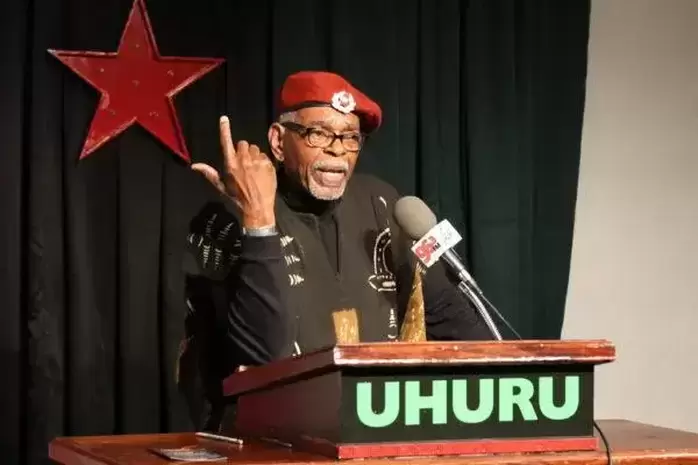
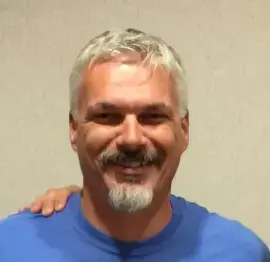
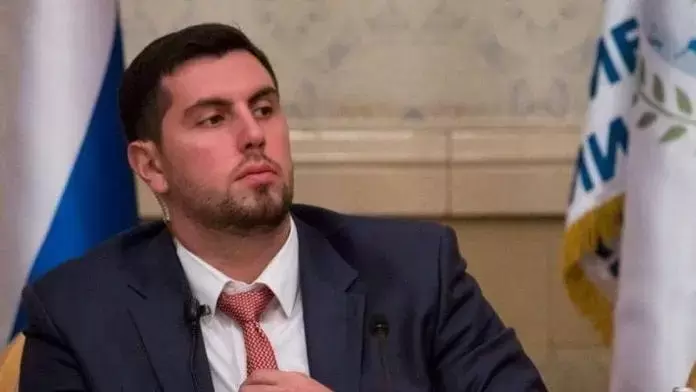
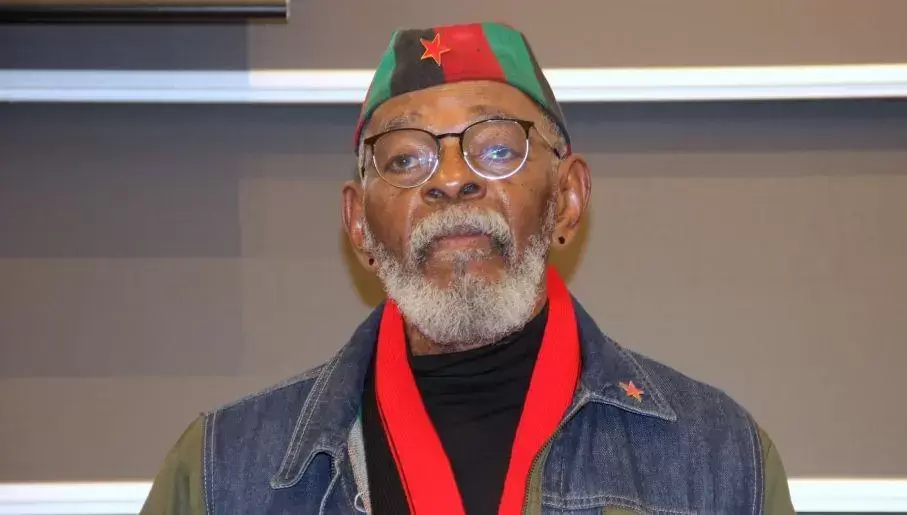
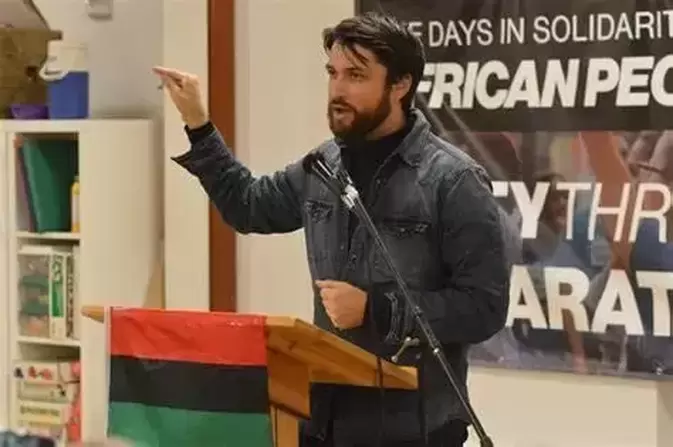
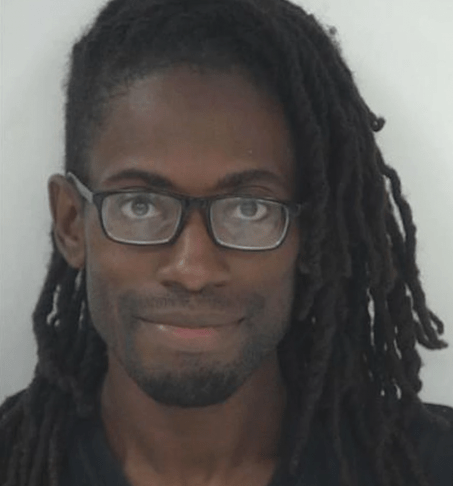
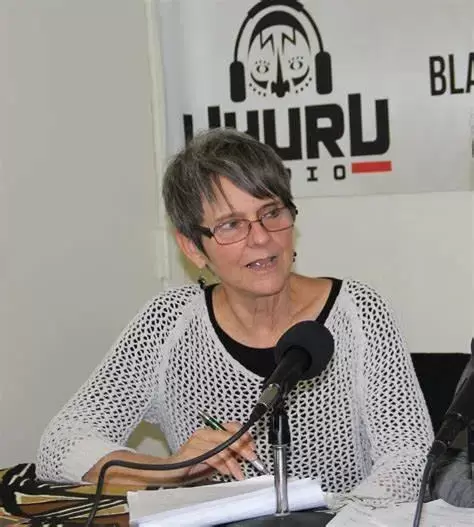

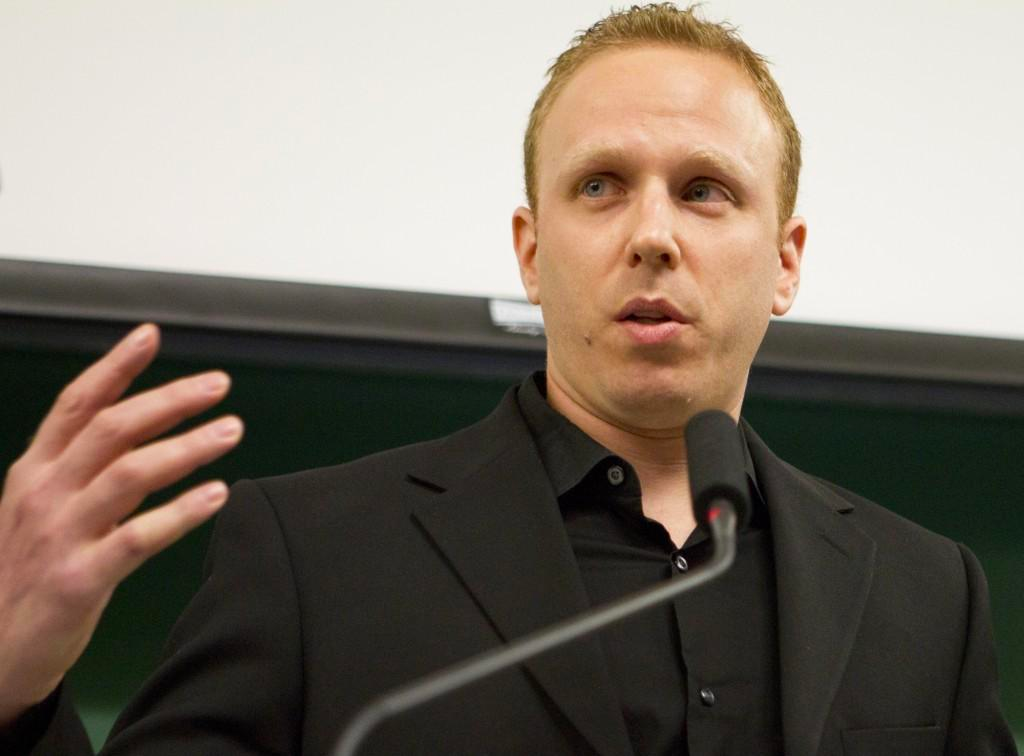
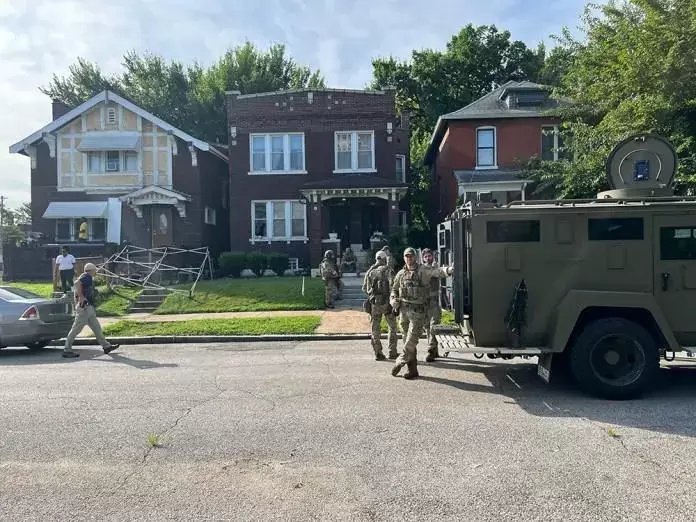

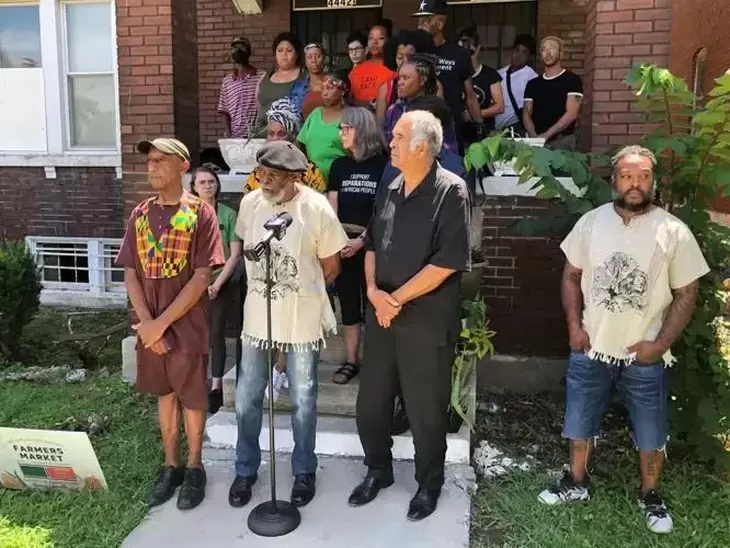
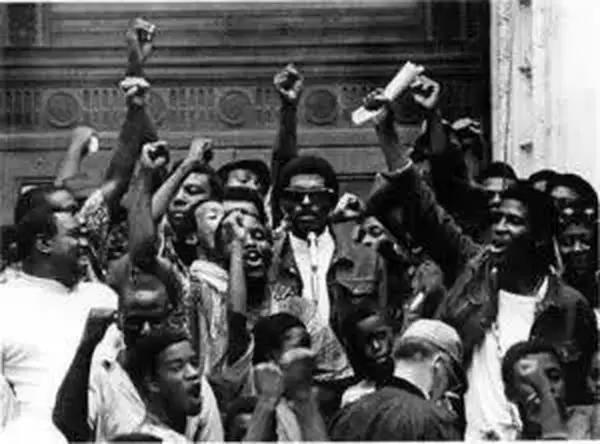
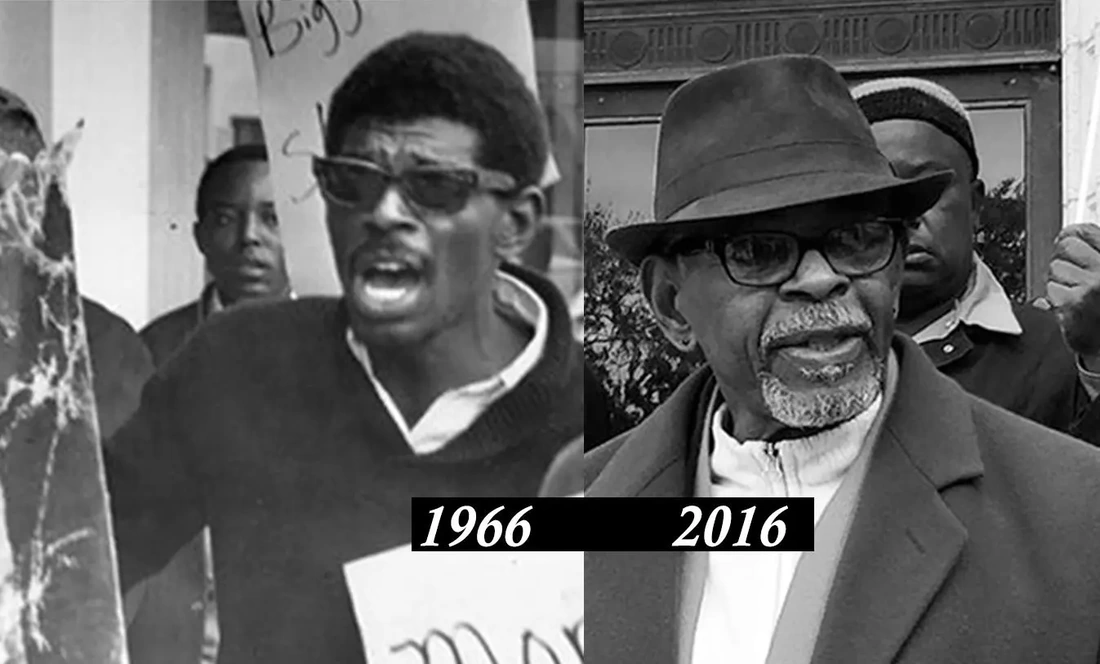
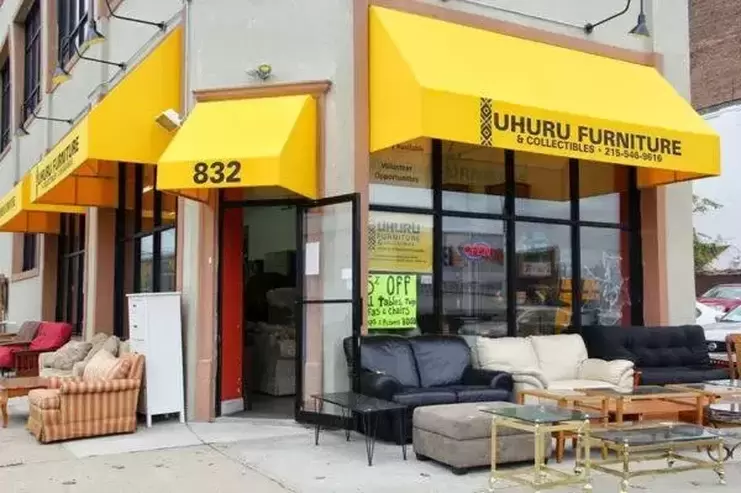


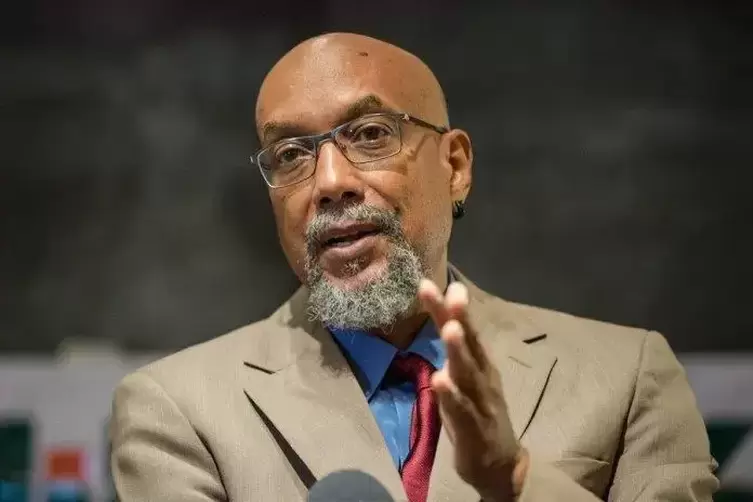


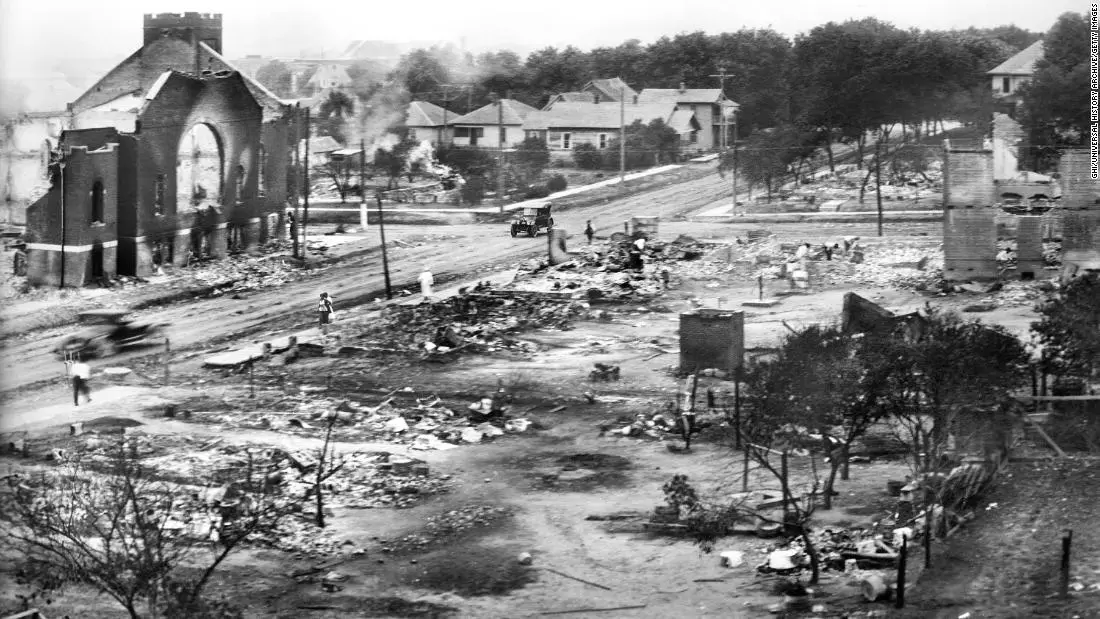
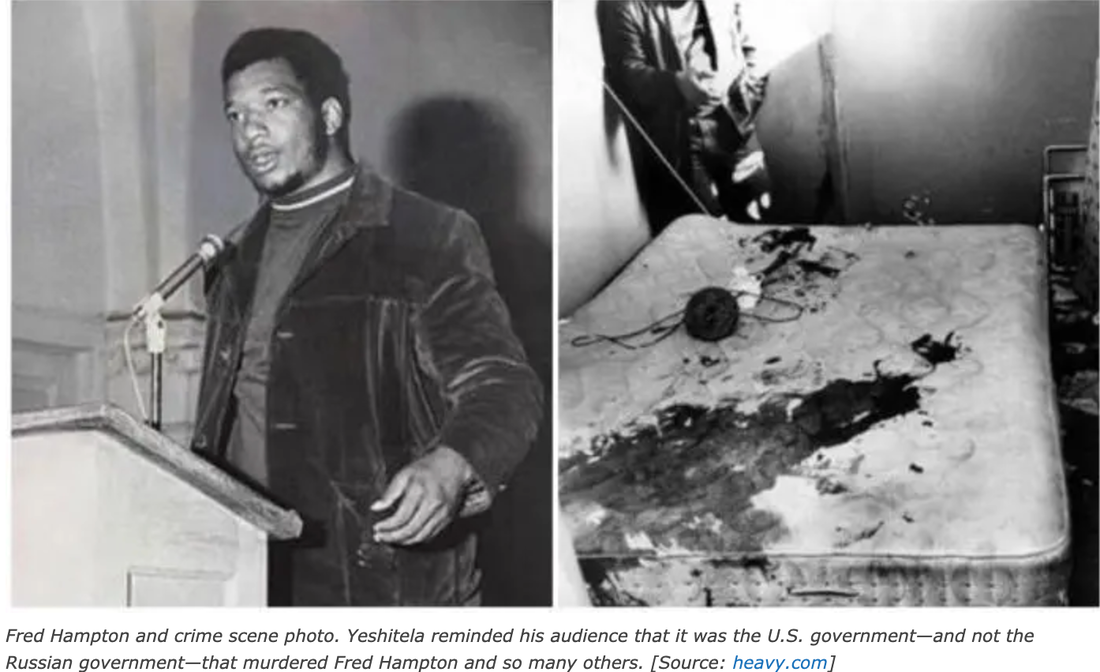

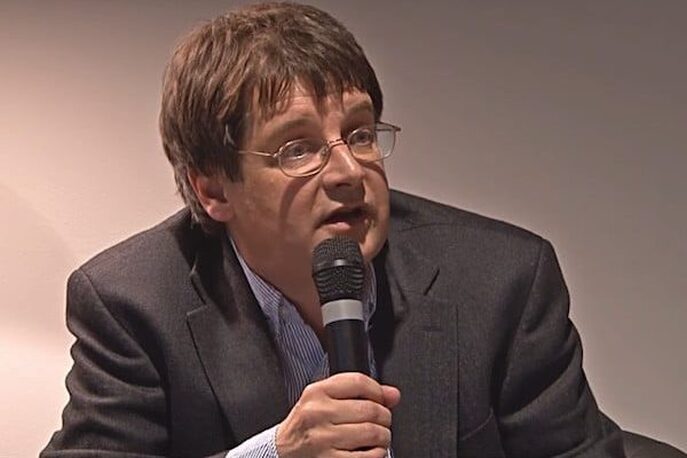
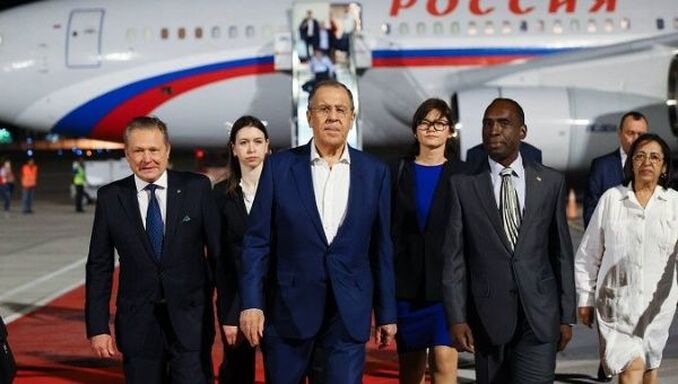


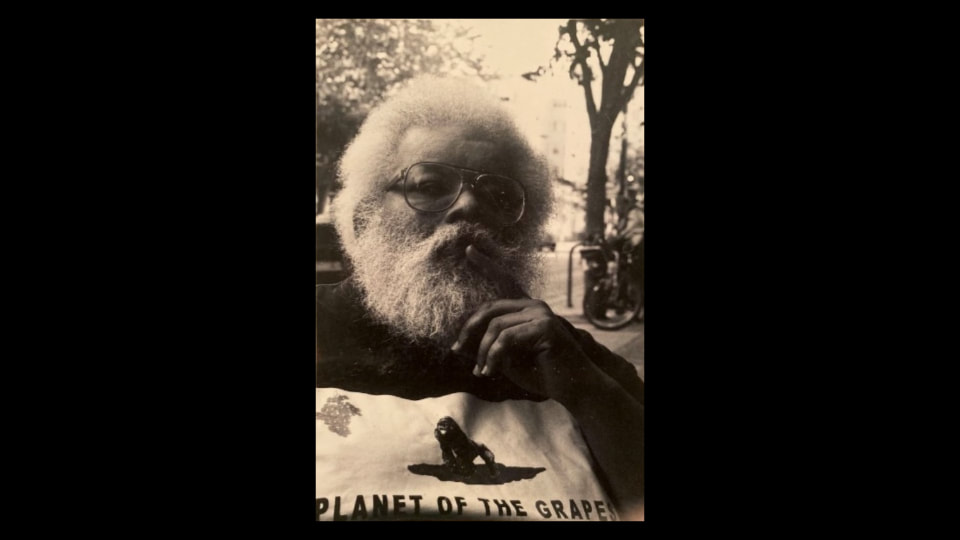
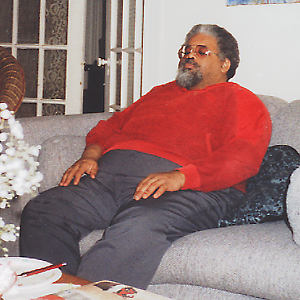
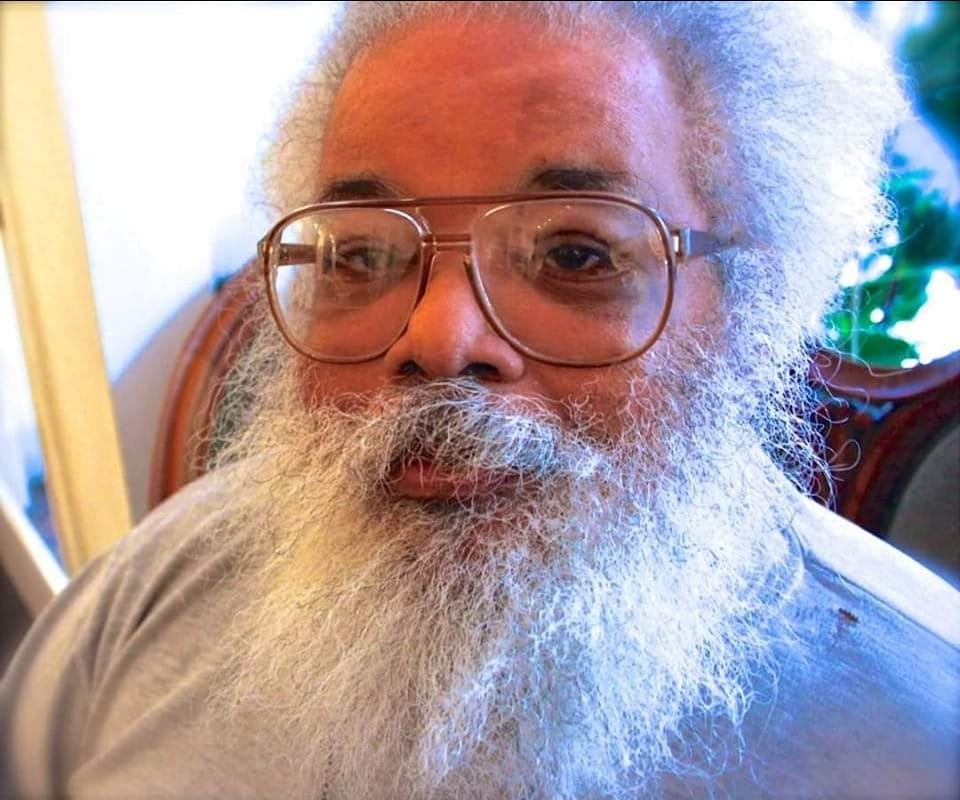
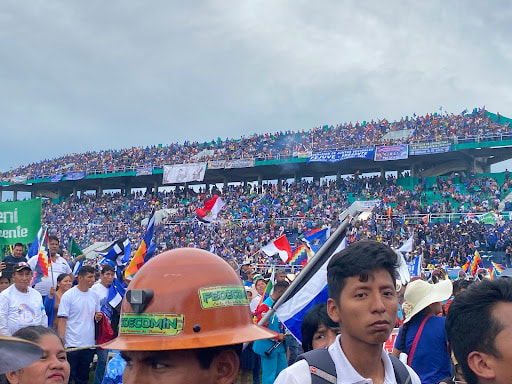
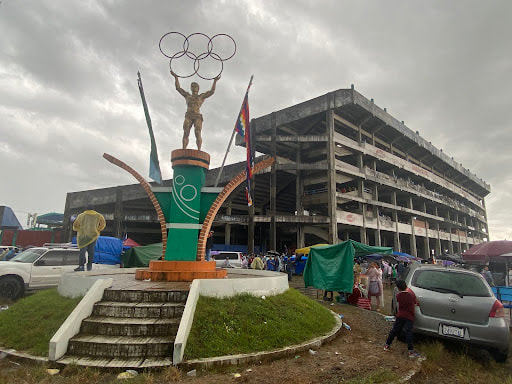

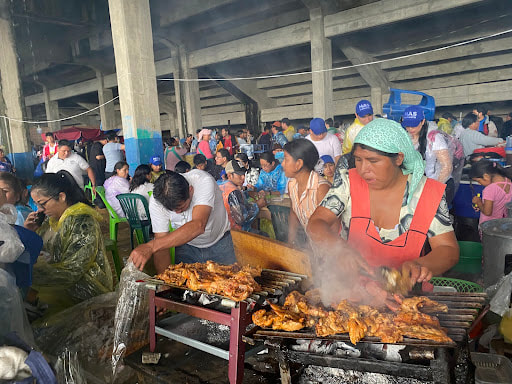

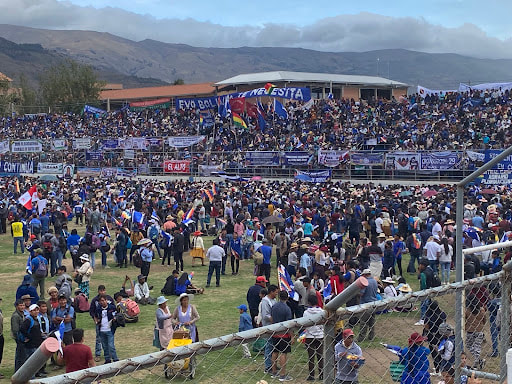
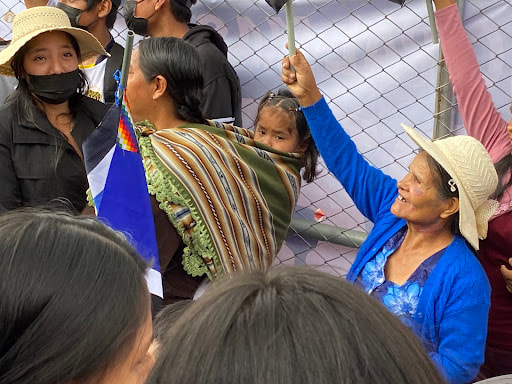
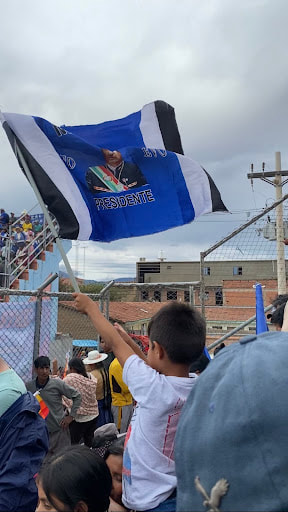
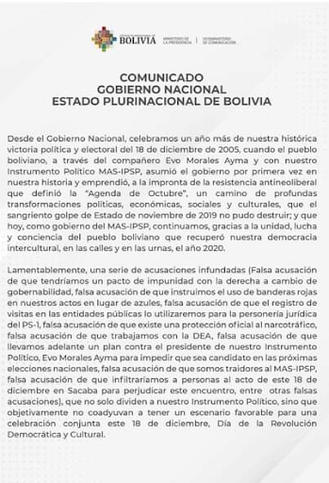
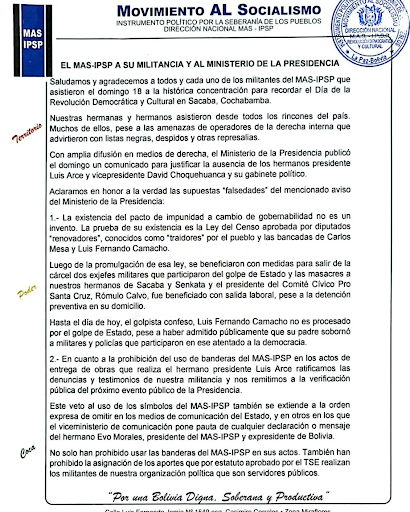
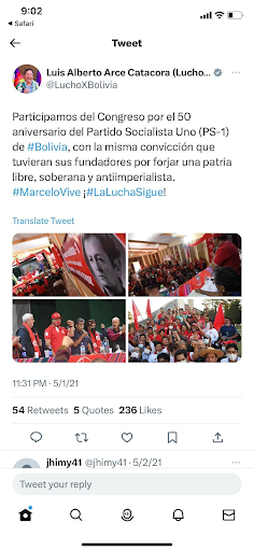
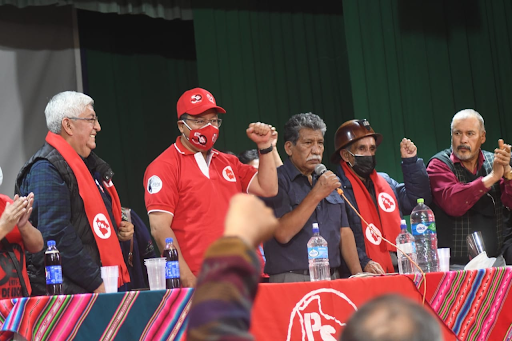
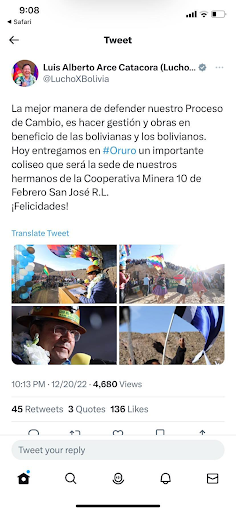
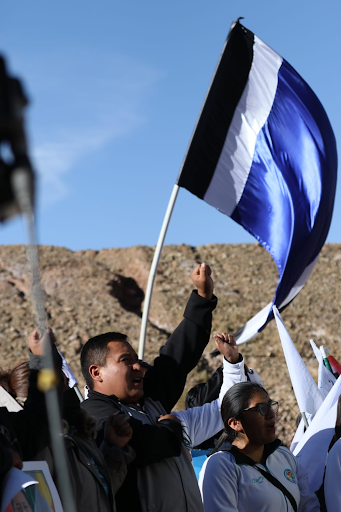

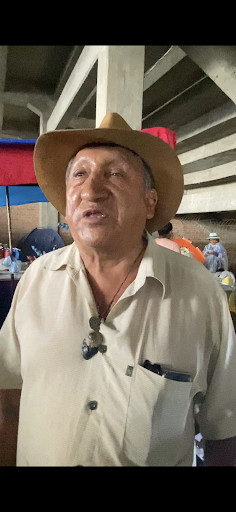

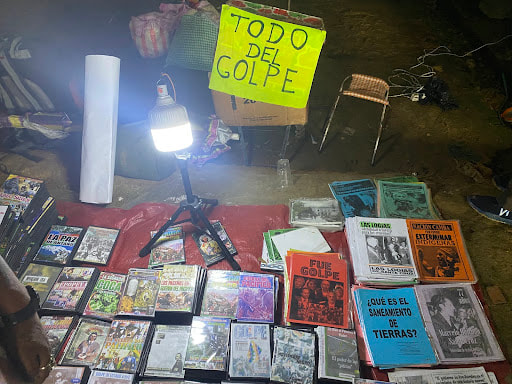
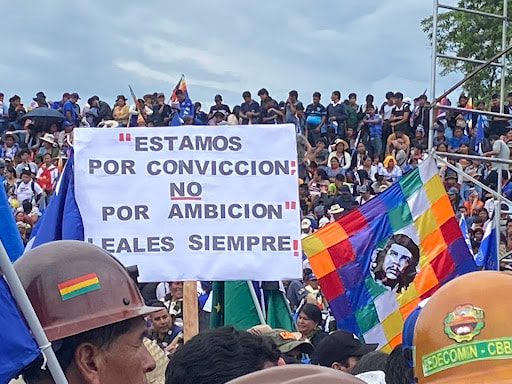
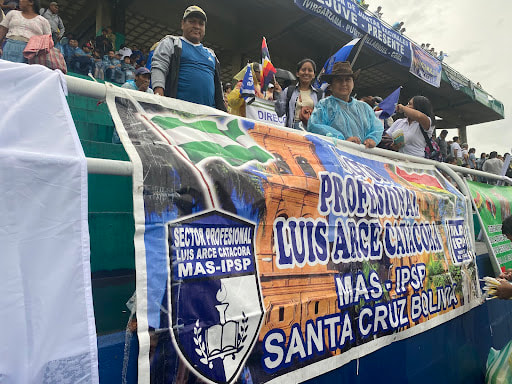
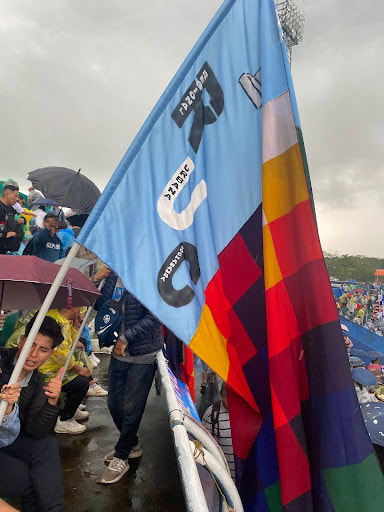








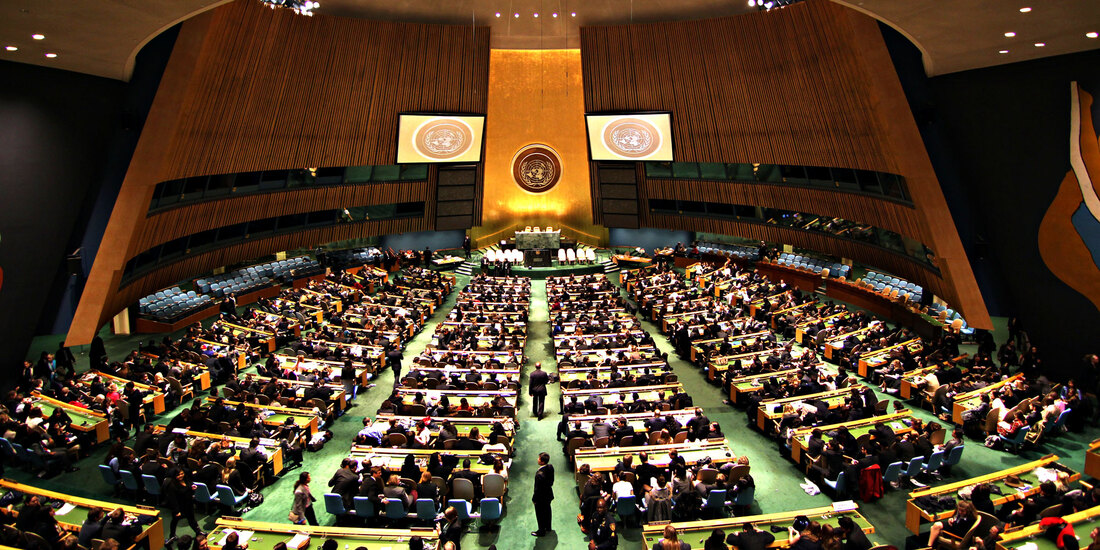
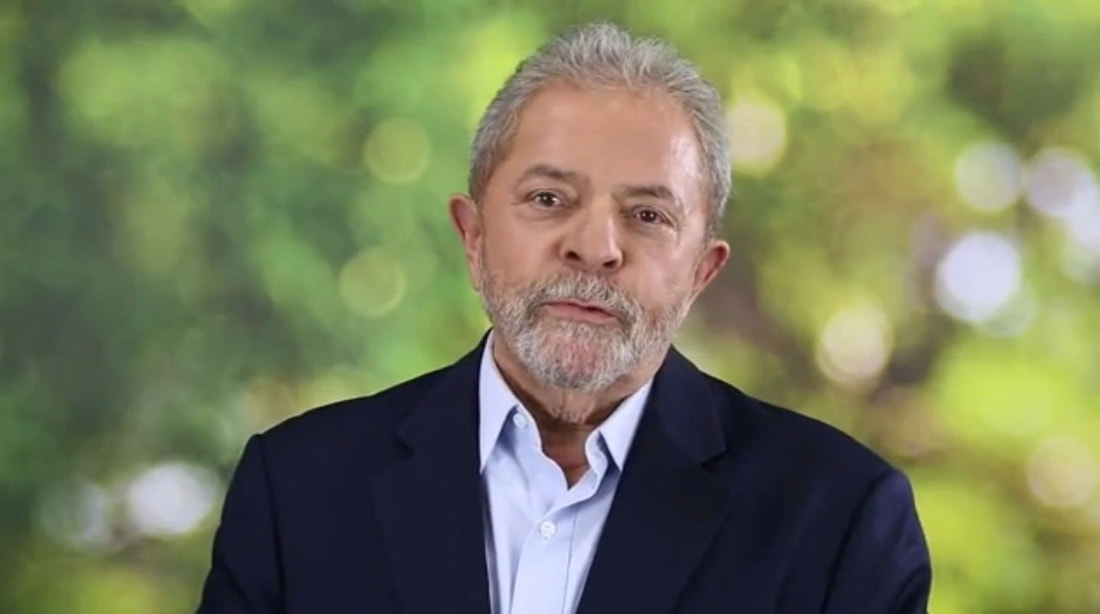
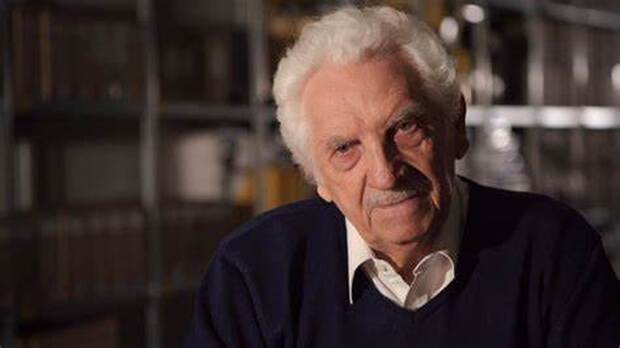
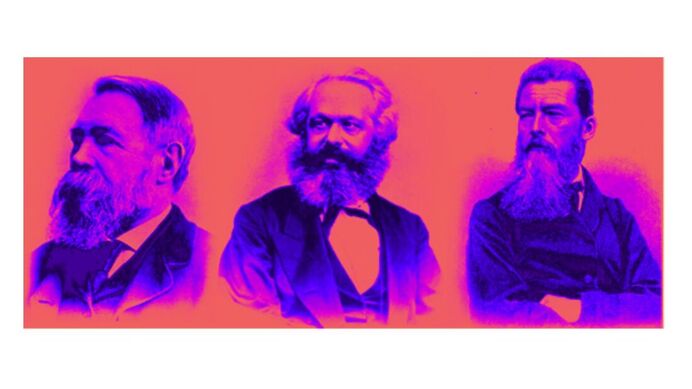
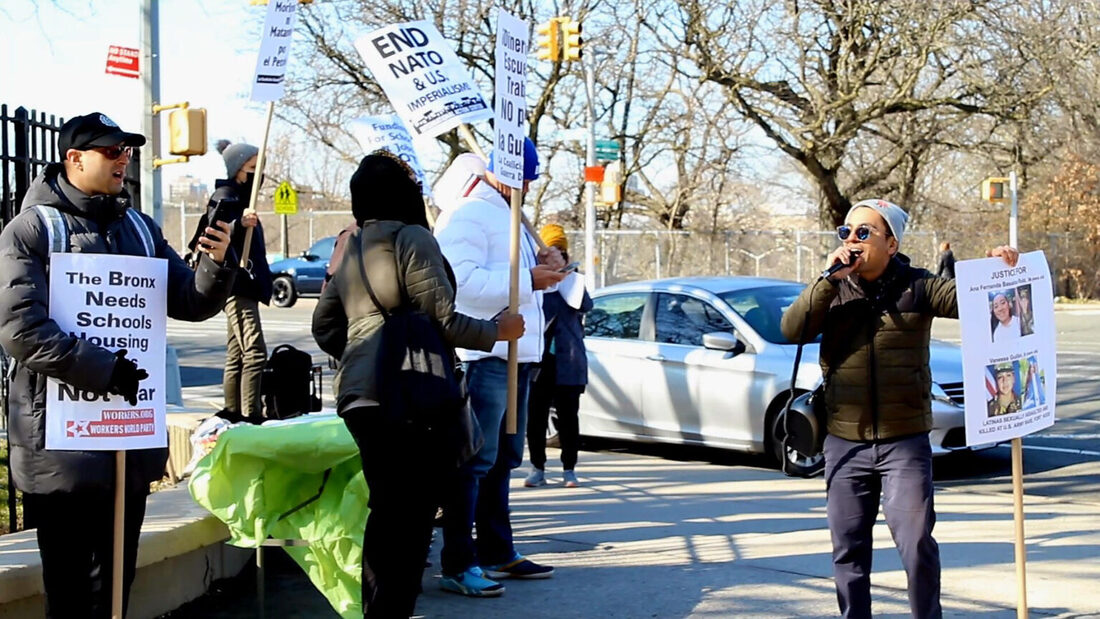
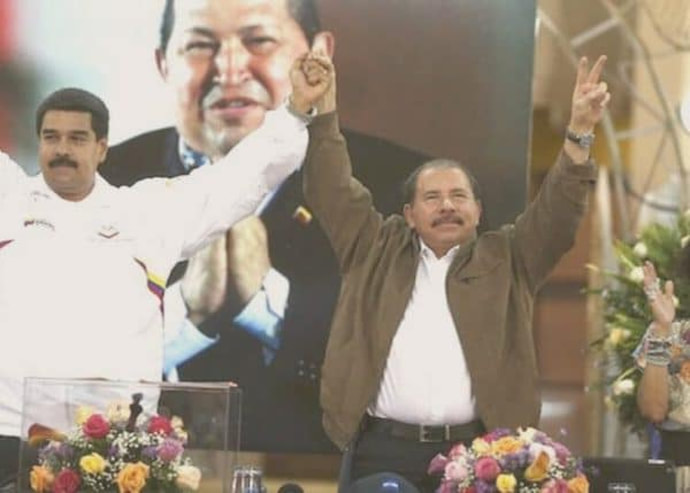
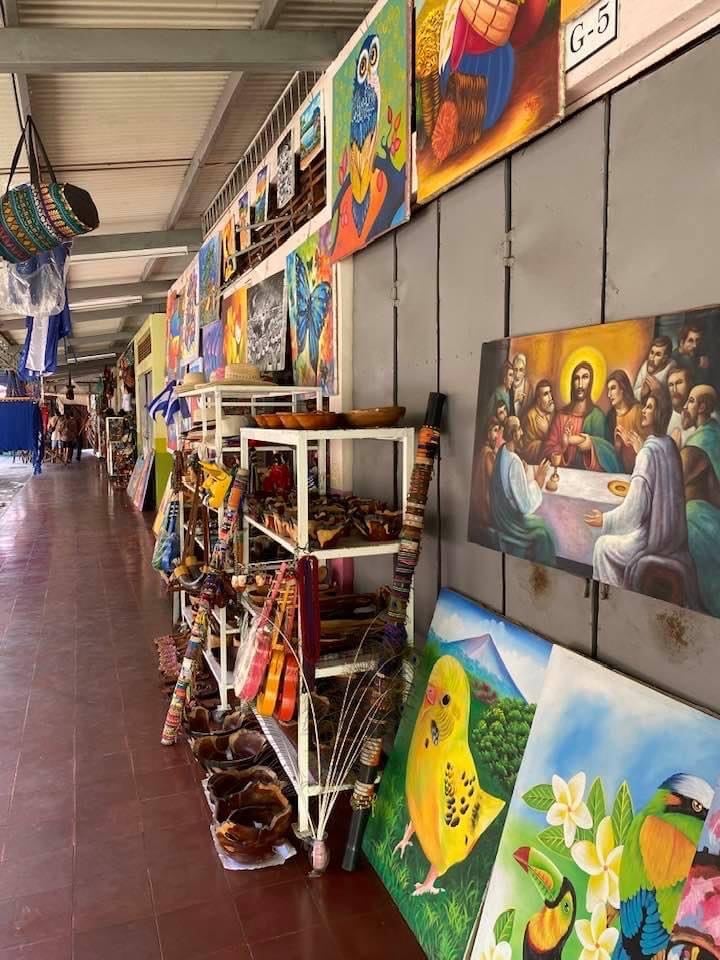
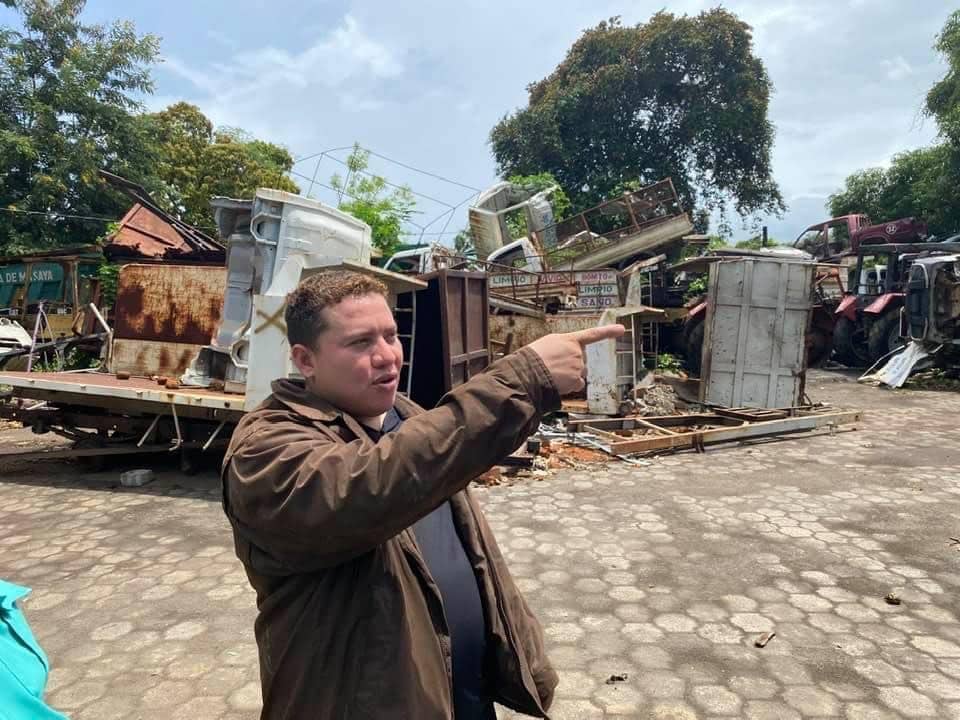

 RSS Feed
RSS Feed